#'ultimate teenage girl coming of age movie'
Explore tagged Tumblr posts
Text
baz luhrmann joan of arc movie..............
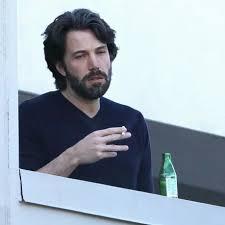
#'ultimate teenage girl coming of age movie'#me and an army of transmascs/butches stampeding over baz luhrmann like the wildebeest in the lion king#ready for inane visual references to the passion of joan of arc with pop music in the background#oh and don't even get me started on how that man is going to handle her actual belief in god and how she was repeatedly raped in prison#bro couldn't even handle giving priscilla presley the barest amount of nuance
0 notes
Text
CRUSH - lhs TEASER

Pairing: Lee Heeseung x freader
Genre: fluff?; slow burn?
Word count: teaser is around 5k (yeah it’s a lot)
Warnings: yn has never been in love, Heeseung is yn’s brother’s bestfriend, mention of other idols, pet name that’ll make you throw up, English isn’t my first language sorry for every mistakes made I’m still working on it
Full story will be out before the world ends (hopefully)
Never being in a relationship may have fucked up your perception of love. You were born a hopeless romantic, as far as you can remember you have always been waiting for that day where you would fall in love and never let go of this person. You really wished it happened but years passed and still there was no one. You debilerately didn't date at first because no matter how much pressure your friends used to put on you during your school days there was no way you had a boyfriend at the ripe age of 8 (that and also Adam was really bad looking). Anyway at 8 you weren't interested in having a wedding during play time with some guys you were sure you would be ashamed of later.
When you hit middle school you were still reluctant of this idea, it's hard for a teenage girl to grow properly if she has to deal with a man. And guys are so annoying at 14 years old, let alone how bad looking they are, no it wasn't for you. At 14 guys were discovering sex and they would have made you like some kind of slut anyway so there was no way.
During highschool you weren't against experiencing love, at this point you had seen "to all the boys I loved before" and you were secretly wishing Peter Kavinsky would find you somehow (the Peter from the first movie not the one that wasn't waiting for Lara Jean in the hot tub duh). You were only disapointed when you realised boys were still not to your liking, and still annoying, and Peter Kavinsky wasn't real. But also, they weren't looking at you. To be honest you were never the center of everybody's attention but you weren't left aside that much. But highschool turned things, you never realised how much more beautiful your friends were until the moment it hit you. Guys were all over them while no one looked back at you, not that you would have looked their way, but still you realised that maybe, guys found you ugly.
And this is how you ended up still lonely, unloved and virgin at 23 years old. Sure 23 isn't old, you're still so young, but every time you tell someone that no, you had never been in a relationship, no you were never in a situationship, no you never reached the "talking stage" with anybody, they always hit you with the "No way you're lying" or "You're not missing out on anything don't worry love only hurts" and even worse "You'll see, love will come when you least expect it" as if you were expecting anything anymore. Like your bestfriend would always say, you're the ultimate virgin: no kiss, no hook ups, no relationship, not even a crush (celebrity crush doesn't count since they are out of reach anyway).
Howeber being born a hopeless romantic you had to somehow fill the empty void in your heart, that's how you ended up watching rom-coms, romance anime, all sort of drama, your favourite songs were all about love, you began to read romance books, manhwas, romance mangas, and the devil itself: fanfictions. You were something like 13 when you discovered wattpad and fanfictions, you couldn't believe what you discovered that night. You had to put an all nighter to process everything, it was like the pandora box, there was so many love stories for free, you rushed to read as many as possible, always waiting for updates to your favourite stories. This is how you discovered what they called lemons at first, the smut, you would've never imagined that at 23 you were still reading about it and still wonder how it really is.
This made you who you are today, the quiet single girl, reading things on her phone. Everybody around you knew how single you felt inside, claiming either that you would end up alone anyway and that no man deserves you or even that you're still single because it meant that you would end up with the sexiest, prettiest, loveliest, richest most perfect man on earth (stay delulu).
And you think about your prolonged celibacy when you see two person kissing right in front of you while you're waiting in line to get cookies for you and your bestfriend, and with Juno by Sabrina Carpenter playing on the background you swear that if those two motherfuckers in front of you don't separate asap you'll start throwing hands.
"Stop hating on them I can see the daggers your eyes are throwing." Kazuha said, walking toward you.
You sighed, "I can't take it anymore, one more couple and I'll just kill myself." You mimicked beheading yourself with your thumb as if it was a knife.
"It's the campus couple's dating place, what were you expecting?" She whislted a laugh, replacing her hair behind her ears while looking at her phone. She was right, what exactly were you expecting, it's always like that, people are always eating each other's face as if they wished to swallow the other one right in front of you. No you're not jealous, you just wish they were more considerate of other people around them.
You practically ran back to your class after eating outside just to be back in the anxiety of university courses, what a delight. Kazuha followed you, amused and just plopped on the sit next to you, the auditorium wasn't full, you still had time before the beggining of the next lecture and Kazuha took advantage of it to show you all her campus crush's pictures. He is known among every student for being one of the hotest boys on campus. There was a day when you and Kazuha were trying to find a vending machine and you randomly crossed his path, it was the day Kazuha developped sort of a crush on him after he smilled in your direction.
By sort of a crush what you really mean is that she began to call him her husband everyday and sending you pictures of him on her secret twitter account. You don't know where she got all those thirst traps of him but there sure is a lot and you can't deny the fact that he is good looking. What you find weird is the fangirling, she doesn't know him, has never heard him talking or do anything else than walking on campus or posing on those pictures? The only thing she knows is that his name is Lee Heeseung, he is 2 years older than you, he majors in sociology, he likes playing basketball and he is popular for his doe eyes.
But for her knowing that little about him is making all this "campus crush" thing funnier as she says. She treats it like a celebrity crush, she doesn't want to be in a relationship with him but she enjoys the view of him and the excitment whenever she sees him on the other side of the road. Sometimes she forces you to follow her, making a detour just to cross his path and giggle when she realised that you walked right in front of him, always claiming that she sweared he looked at you or that he seemed geniunely curious about you.
No matter how awkward it was you had to cope with that crush thing, you were the only follower to that secret twitter account she had and where she posted all of her crushes, from Lee Heeseung to Zayn Malik, each time she came across a picture of one of her crushes she just had to tweet about it, and to be honest it was really funny to witness, every off putting comment about how she could die for the man on the picture or how she deserves to be their wife made you laugh, some innocent freakyness never hurt anyone.
"Oh you should take a look to the last picture Carlos Sainz posted on his instagram he looks sooo yu-"
"What the-" You suddenly heard the group of girls on the row in front of you laughing louder, cutting Kazuha's fangirling session. They all turned toward you two, eyes wide on shock and mouth covered by their hands as they where giggling and whispering to each others. You shoot a glance at Kazuha who wasn't understanding either what was their problem. You knew those girls, two were Kazuha's roommates, they weren't close friends but they got allong well so such weird behaviour was really surprising coming from them. After a minute of incomprehension, one of Kazuha's roommate turned around with her phone in hand. "Kazuha is that you?" She handed you the phone and you gasped in shock, a shock that was nothing compared to the terror in Kazuha's eyes. Automatically her eyes found yours, it was unthinkable but her secret account had been discovered. The tweet Yuna was showing you was one of the numerous pictures of Heeseung where Kazuha commented "looking so fine and for what?".
Everybody's eyes inside the auditorium was on you, regardless if they heard what was happening or not, if they knew what was happening or not, everybody had their eyes on you and Kazuha who probably wished to disappear right away.
"W-well I-" she stutters, searching for something to say just to make this whole thing less embarassing but it was too hard to witness. You've never seen Kazuha so embarassed before, you could only guess what was going through her head. These four girls knew who Heeseung was. You were already imagining Kazuha's distress when she would just be inside her dorm whith her roommates also there, just talking about how Kazuha was a weird fangirl.
"It's not hers it's mine." You blurted out without even thinking.
All eyes shifted to you, the shock on their faces only growing because everybody knew you as the no boyfriend girl. Even you were shocked about what you just did, you sacrificed your whole social life in order to protect Kazuha's reputation. This whole discreet attitude, you always did your best not to attract unwanted attention, all this work was long forgotten now. Kazuha snapped her head toward you, the fear inside her eyes was now mixed with incomprehension. Why would you even do that?
You were already regretting that dumb decision your stupid mouth made by itself. Now you were just mentally preparing yourself for the worse time of your life, far ahead of the day you had your wisdom teeth removed.
"So you have a crush on him?" You saw one of the girls ask and you knew she had something in mind while asking that. The mission was clear right now, you had to limit the damage, by all cost.
The thought of it made no sense to you, no you couldn't possibly have just a slight crush for him. But for Kazuha's sake you had to put on the act of your life. "He is good looking, is it that shocking?" the nonchalance in your tone was crazy, somebody give you an oscar right now because you're giving the act of your whole life.
But after all you didn't lie, you found the man good looking.
"No it's just that... I wasn't expecting you out of all people to have such account..."
As you were about to answer, the teacher came in and started the lecture right away switching everybody's attention to whatever he was saying, even tho you still saw the girls stealing glances in your direction. This was incomparable to the day you got your wisdom teeth removed, it was way less painful back then.
"Thank you..." Kazuha whispered, making you sigh.
"You owe me for your whole life now girl..."
By the end of the week you knew everybody knew about your secret fan girl twitter account, you were suddenly the centre of everybody's attention, people shooting glances at you every now and then. After the incident, you made sure with Kazuha that she DELETED that stupid account before even more damages were made (even if you deeply knew it was too late). You were suddenly glad that you weren't in the same major Heeseung was in, at least you would not be running into him randomly. There was still a very thin chance that he would never hear about that fangirl account or something and this is quite litteraly what you were wishing for.
You had to wait for a week before you stopped hearing whispers whenever you walked by (it's hard to think that you're in university and not highshcool with how people reacted to this whole drama...) the storm was now behind you (or so you like to think), you just had to go ahead, and by going ahead you really meant anywhere but near the sociology major zone, out of fear that you'll run into Heeseung. That's why when Kazuha asked you to go to a party you refused, knowing that it's always one of Heeseung's friends throwing parties, and you weren't taking that risk.
But of course you never refuse anything to Kazuha, it's just how you show your love to your friends -even though sometimes you wish your love language would've been words of affirmations and not give in to whatever your friends want- and one thing lead to another you were ready, in front of the house where the party was being held. It was the -huge- house of one of the guys in the same major as Heeseung, but Kazuha swore to you that he wasn't going to be at the party because he was busy, it was Kazuha's roomate that told her that and (it helped Kazuha getting what she wanted: you going to the party). The sight of the house left you wordless because you weren't aware at all that someone that rich would be studying in the same university as you.
The house was so impressive it got you stuck in front of the doorway, staring at it while considering if you were dressed well enough just to step inside and the answer obviously was no. You were just wearing a cargo pant with a crop top and a leather jacket, of course you weren't wearing someting good enough for the house.
"I can't..." you said to yourself, turning around. It didn't matter that you just texted Kazuha to say that you arrived, you were ready to run back to your place and you really would've done it if it wasn't for the man you bumped into.
"Are you running away?" A soft chuckle leaving his lips as you shifted your gaze to his face, only for you to recognize Lee Heeseung.
The first thing you thought about was the LIE Kazuha had told you, the man was right in front of you in the flesh. For a "too busy to be here" man he seemed very present, relaxed and free.
It was far from your first time seeing him this close but for a second your breath was cut, your body stiffening as if you were caught red handed doing something bad. Either it's the shame of getting caught chickening out of a party, the guilt of knowing that you -kind of- stalked him for the past year because of your best friend, or the overwhelming embarasment of the possibilty of him knowing that you were the one managing a fangirl account of him even if it isn't really you...
You quickly tried to regain composure from the built embarassement inside of you before answering him with some poorly faked nonchalance, wondering where your acting skills had gone "I just don't feel like going anymore, I think I'm sick or-"
His laugh echoing in your ears and his hand on your lower back stopped you from talking. He used his unexpected grab on you to turn you around with one hand on your shoulder, the other still well placed on your lower back. You then felt him leaning toward you and the heat of his breath dying close to your ear as he told you: "C'mon let's have fun inside."
You gasped.
The man didn't give you a single chance to escape, he was pushing you toward the doorway no matter that you gave him a desperate look or that you shook your head, he seemed determined to take you to that party. If it was somebody else you would have taken their hands away from you an maybe you would've even scream at them, but there was something with Heeseung that stopped you from doing so, a supernatural force that just broke your ability to talk and disconnected your legs from your brain leaving them on auto-pilot, forcing you to follow Heeseung's lead.
As he pushed you inside, you realised that being impressed of the doorway was stupid, you should've guessed that the inside would be worse. The entry was huge, so was the garden and the pool inside of it. There was people everywhere, music blasting (not that you just discovered it, you just didn't pay attention to it when you were in front of the house), even the lights were set in a cool way, there was colorful neon around the place maybe to give a more partyish vibe and it worked just fine because for an instant you thought you were at a fancy party that Jackson Wang hosted like in every single fanfiction.
After a few seconds of being impresed by the place, you realised that Heeseung's hands weren't on you anymore, taking it as your sign to finally run away from here but the man was still paying attention to you and once again stopped your from running away.
"Stop holding me hostage and let me go home please." You pleaded, both your hands joined in prayer sign with the best doe eyes you were capable of.
He lifted the hand that wasn't busy keeping you from escaping the party and moved his pointing finger from left to right, shaking his head along to say no, he wasn't letting you go home.
You sighed in defeat, maybe this was the universe's way to tell you that you had to stay here, and at least you'll have some tea to spill when you'll fid Kazuha amongst the crowd of the party. You'll tell her how her campus crush hold you hostage and made you move around inside the house with his arm resting around your shoulders- When did he put his arm on your shoulders?- Once again your body was moving alone, following Heeseung inside the house, toward the living room where his friend group was settled. When you realised the arm on your shoulders you pushed it gently, you were uncomfortable with this and he understood it, immediately taking it down while muttering a slight "sorry", he still kept pushing his hand on your lower back to lead you toward one of the free couches.
As you pop down on the leather sofa, you realise that Heeseung dragged you far enough so that people will not give attention to the both of you and you let out a defeated sight. You tried so hard not to get involved with him.
"Why would you come to a party just to renounce last minute?" Heeseung asks you, his tone seemingly geniunely curious. You can't tell what it is but something in his demeanor is telling you he will not let you go so soon. His body is fully turned toward you, his crossed legs touching yours, the slight friction making you contract your legs' muscles each time.
"My friend asked me to come but you know... I just don't like parties..."
"Why isn't your friend with you? They chickened out as well?" He jocked. He doesn't believe you, either because he thinks you're a loser and you don't have any friends or he knows. For your own well being you'll think it's the first option.
You gave him a side eye, making him smirk. Oh he shouldn't be giving you that look, you're not really in the mood to get teased by him. "No, she must be somewhere in the crowd, I texted her that I was here a minute ago so-"
"-Let's wait for her here then."
The mood suddenly shifted into one that you couldn't quite describe, it was just the way his eyes wouldn't let go of your figure... What was his problem? Maybe you looked really bad? Or funny?
Or he knew...
"I really don't think I'll enjoy the party... let me go please." you whined once again, maybe you'll end up having what you want if you ask non stop for it.
For the nth time you looked at him as he shook his head in disaproval "There is no going home, I'll help you enjoying tonight don't worry." The same smirk sticking on his face as if it would kill him to just not look at you as if he was permanently teasing you. "I'm your shining armor knight, here to help you have the night of your life baby love." A scoff escaped your lips because of how cheesy that line was, and you almost threw up because of the emphasis on the cringey nickname he gave you. He did it on purpose because he knew how you'd react to it, espacially to that specific pet name, he knew you too well.
"Heeseung..." you grouched, eyes fixed on his while he looked at you with a slight pout on his face, he was mocking you, giving you false pity. You knew from the beginning it was useless to try to escape from him if he caught you.
Heeseung and you knew each other since you were 10 and him 12. Your older brother had a huge group of friend -unlike you- and Heeseung was one of them. You never paid attention to your brother's friends. Why? Because you were uninterested in them to the point it was hard for you to remember some of their names. If your brother was a social butterfly and tried to befriend every human being it wasn't your case, plus you had enough friends on your own to try to befriend his. That was until Heeseung.
The first time you saw him he seemed shy, when your brother opened the door wide and declared that you had to let them use the big tv so they could have a smash bros tournament Heeseung seemed uneasy with that idea. You remember it because when you took your stuffs to leave -while rolling your eyes and giving the biggest attitude to your brother- Heeseung excused himself for disturbing you. That is how you ended up remembering him as the polite one. Since he was the polite one, you were cool with him. You learned his name fast as he was often going to your place to do whatever teenage boys like to do and that you're not interested in. And at some point you began to chit-chat with him learning things about each other and he ended up opening to you. And it was the moment you learned who really was Heeseung.
Of course he was well behaved, his parents taught him well and they had a beautiful son. At some point Heeseung became such a regular at yours that you weren't even surprised when he walked inside your house, you recognized him when he knocked on your door - five very recognizable firm knocks spaced by several seconds each to make it dramatic - in the end he was really nice and for once you could understand what your brother saw in him, he was fun to be around, a good friend.
But this was hidding his real true identity, there is a reason why he became friend with someone like your brother, if they clicked that well it was because they were similar in some aspects.
Heeseung was popular, you would've never guessed it based on how he behaved at home but he really enjoyed it. Back then you were kind of unaware of his and your brother's popularity, unaware that the attention your brother and Heeseung gave you would soon become the worst thing to deal with ever. At first they treated you as some sort of mascot, each time they walked past you they would scream your name, make you name the one you liked the most -nobody was surprised when you always answered Heeseung-, they forced you to walk with them to go home, dragging you around with them each time they crashed at the town's old soccer field until late.
And the rumor got spread way too easily that Beomgyu's sister was in the building and that she always spent time with his whole friendgroup, but especially with Heeseung.
Your friends found it very cool but you didn't. Older girls began to walk to you, taking you away from your friends to talk about your brother and Heeseung, always and suddenly everything began to be about them. What was Heeseung like when not at school? What was your brother's favourite tv show? Have they ever talk to you about girls? Who?
After you explicitely told them that you didn't wanted to talk about them those same girls that treated you like a friend became hostil to you, glaring at you each time your brother or Heeseung would walk past you and tease you about something casual, some even began to create sort of a competition of who is closer to the boys even if you never agreed on participating.
You hoped it would stop after they left middle school for highschool. You had a break for two years. Nobody was triggered by your interractions with them. People had nothing to add fuel to their curiosity about your relationship with Heeseung and you finally were at peace. At least at school.
At home, Heeseung began to add to your brother's bullying. They would always tease you about everything, it was armless nothing really deep but it was unwanted attention from them and you were short tempered so they just had to annoy you for the sole fact that it was easy. The main topic of their teasing being your non existent love life, while they had a list of persons waiting just to be looked at by them as long as the Burj Khalifa. You were suddenly the bitchless loser of the house, reading about romance all the time but never being the one living it.
Then you went to highschool. And they were there.
For a whole year they made sure to drive you crazy. Encouraged by your brother, Heeseung began to call you by every pet name known to mankind, just because they saw one when they stole one of your books. Boo, sugarplum, cutie pie, darling, honey bear... you had no break. His favourite one was baby love, you almost threw up every time he called you that but it made him so happy to see your constipated face whenever he called you that in public.
On the bright side since your first middle school year you were more brave and even tho people knew something was up between you and those two, no one really went to you to ask about it, the glares remained but at least they were silent.
When they graduated and eventually went to college it stopped. Heeseung wasn't around that much anymore and he seemed to be busy. Maybe it was college that kept him from visiting or whatever but it made your life way calmer and god how much you liked that. The few times you saw him it was brief but he never missed a chance to tease you with the pet name you couldn't escape from, baby love. It was just so stupid but it sticked. Even your own parents began to call you that and you almost became crazy. Every time they called you that, you thought about Heeseung, cursed at him for being the reason your whole family refered to you as baby love, and more because if someone should be calling you that it should be only him. After all he was the one who made that pet name up, not the others.
When you moved to uni you knew Heeseung was majoring in sociology and that your own university was providing a sociology major, you just didn't know where he was studying but the chances for him being in the exact same university as the one you wanted was so low that you went there easy minded. When you realised that you should have asked your brother where his bestfriend studied it was already too late, he was on campus, on the first day of class, his eyes as wide as his smile.
You don't have no superpower but you knew what he was thinking, he wanted to jump on you and celebrate your reunion. But before he embarassed you in front of the whole campus you ran from him. You decided that instead of asking him to leave you, you would ignore him. But of course you can never escape forever, reality always punched you in the end, you couldn't stay away from him forever.
"Why are you even doing this?" you asked, in reality you knew he just missed teasing you and a part of you missed him too because, if he was mainly annoying he wasn't always a nuisance and sometimes you had really good conversations with him. But you were stressed out regarding a certain twitter account, but he hadn't say about it yet so you were starting to assume that maybe -just maybe- he didn't know.
"Because I caught you running away."He giggled.
You rolled your eyes, before looking back at him deadpan. "I didn't try to run away."
"Yes you did."
"Ok I did."
He laughed, easing the tension or whatever was making this situation feel somewhat heavy. You were glad because you couldn't bare the creeping hotness on your body that -you were absolutely sure- made you flush. Hopefully the dim light had your back hiding your red face from him.
You also hope the faded lights were hidding your secret glances at him. You didn't know where to look at, because looking at him seemed too much for you but there also was the fact that your eyes were just attracted to him. You wanted to detail him, look every detail of his face, understand how he parted his hair or witness for yourself his famous bambi eyes that you avoided for so long but that you really liked in reality. It had been so long since you've seen him this close, you felt like getting back you favourite old teddy bear. But you couldn't, the only thing you allowed yourself to look at without too much shame were his clothes, you were surprised to see that you somehow matched tonight, he was dressed in the same colors as you, that made you smile.
"Now that I caught you Y/N I had a question..."
You humed a slight "hm" while nodding, if he wanted to kow why you escaped from him you knew that you will have no shame telling him that he was as embarassing as an intrusive parent and that if he wanted you to behave otherwise than you've been, then he had to stop the pet names and everything else, just drop the teasing.
"Do you really think that I'm breedable? And agonizingly good looking?" He finally asked, on a teasing tone pressing his lips together on a line to prevent himself from laughing at you
#enhypen#enhypen x female reader#enhypen fanfiction#enhypen x reader#enhypen fluff#enha au#enha x reader#enha fluff#heeseung#lee heesung x reader#lee heeseung#enhypen heeseung#enha heeseung#heeseung fluff
29 notes
·
View notes
Text
So I've been contemplating Charles Xavier a fair bit since X-Manhunt ended, and I think maybe I've hit on what I think the ultimate problem is when it comes to the character, for me.
So Charles Xavier is one of those X-Men characters that has a really strong pop-culture resonance. Even people who have never picked up a comic book have at least some idea who he is. He's not as popular and famous as Wolverine, by any means. But if you know who the X-Men are, then you have an idea who Charles Xavier is.
Charles Xavier is bald, older middle aged/early elderly man in a wheelchair. He is the kind, wise patriarch of the X-Men.
Now, between you and me, I'm not sure this portrayal was EVER particularly accurate to the flawed and complicated man we see in the comics, but that's beside the point. This is the image that most people think of when you mention Charles Xavier.
(I bring up the wheelchair because it's an interesting fact that Professor X hasn't used a mobility aid in comics since the early 00s. But despite that, it's still very much a part of our pop culture idea of the man. And I suspect there are ableist tropes at work in multiple directions, but I'm not really equipped to analyze on those grounds.)
On one hand, Professor Xavier has mostly overcome the pitfall of the Wolverine. With Wolverine, the creative folks at Marvel always seem to be a little too afraid to rock the boat. Logan is Logan, and any deviation from the theme is going to be incredibly short lived, and very little opportunity for true character growth or deconstruction.
But on the other hand, I think writers are maybe a bit too happy to engage in full scale deconstruction of the character. This isn't always a bad thing. There's a lot that Xavier has pulled, canonically, over the years that's worth looking at with fresh eyes. It's fun to look at the kind of things that we once accepted as staples of the genre and go "wait a second, what effect WOULD that have on those kids?" and "what kind of person would train children in the first place? And why?"
But then, I think, sometimes the writers would go too far, and we get things like Deadly Genesis. Or the reveal that the Danger Room is a sentient enslaved AI.
I don't think it's a coincidence that those stories came out during the early 00s, when the movies were in full swing. Brubaker and Whedon were not, I think, really deconstructing the COMIC BOOK Xavier. They were having fun with the idea of "well, what if Xavier isn't really Patrick Stewart after all?"
But that means the conversation about Xavier veers away from the genre deconstruction elements of "what kind of man trains children for battle, and what are the effects of that?" to "Xavier mindwiped his foster kid to forget his brother's existence/covered up the deaths of an entire team/enslaved a sentient being."
There's no question there, because those are the actions of a villain, full stop. There's no deconstruction there because, until this point, Xavier wasn't actually a man who would do that.
But continuity and canon being what they are, Xavier is now a man who would do that. And it took a good decade, a redemption quest, two actual deaths, and off screen sanctification to get him back to a functional character again.
I think they did a good job, for the most part, in Krakoa, of showing Xavier at his best and worst. He is the visionary who made it happen (albeit with Magneto and Moira's help, but Magneto wasn't going to unite everyone the way Xavier could.) He was the face of the nation and the dream. And his fuck ups, born of ego and blind idealism, made sense. Of course, the man who wants to be King Arthur put his enemies on his round table. Of course, he wants a universal, simple ethical structure that applies to everyone even if that means a misunderstanding could lead a teenaged girl to be condemned to the pit. He can't overrule the Council to save his foster son's child. He can't just let his brother onto Krakoa when his brother isn't a mutant, no matter how hard Cain's tried to redeem himself....
And so on and so forth.
But then, we get Fall of X/Fall of the House of X. Even there, a lot of Xavier's actions make sense. Overruling everyone to send them into a gate to save their lives? Yes. I see that. Being lost in despair when he thinks he's killed them? Makes sense.
Disrupting Scott's rescue mission in order to go back in time to kill a fourteen year old girl? EH. Murdering people to get into ORCHIS? EHHHH.
I'd imagine that was always meant to be a fake out. At least I hope it was. But it gets into the same pattern with Xavier. In deconstructing the ideal of the man, the writers go to far. Then they end up backtracking. Then they go so far backtracking that we lose any opportunity to get into what he's actually done.
So in From the Ashes, we get the reveal that Xavier did not kill the people of the Agnew. Good. That had been a bit too far. In X-Manhunt, then, this reveal is now public. Yay. Now there's no need for Xavier to be imprisoned. All is forgiven. He can skip off into space with his wife, while everyone is sad.
Except, there were a whole lot of IN CHARACTER shit he'd pulled before that. There's a reason that Storm was barely talking to him by the end of Krakoa. Emma was incredibly livid at the games he played. Magneto had fucked off to Mars in frustration. But only Scott's allowed to actually stay angry at him, and it's portrayed as completely irrational. (Which I liked as a beat FOR SCOTT, but I feel like the others should have had some similar sentiment.)
I'm not saying I think Xavier deserves prison. But what about a hug and an "I'm sorry I've put you through this?" Hell, he could even sidestep some actual accountability and go with "I'm sorry I left you to carry this alone."
Admittedly, I'm a biased single character fan, but ONE apology, to ONE character, it didn't even have to be Scott! That could have gone a long way.
But nope, he didn't do that thing that would have been completely out of character, so everything's copacetic now.
I'm cautiously optimistic for Imperial. I think Hickman's done a good job with a realistically flawed Xavier in the past. But man, I'm going to enjoy the break from this roller coaster. At least there are no eulogies this time.
20 notes
·
View notes
Text
My ultimate film watchlist (2000s)
1930s-1940s | 1950s | 1960s-1970s | 1980s | 1990s | 2010s
Welcome to part 6 of my ultimate film watchlist. This list will consist of a lot of my favorites from childhood that I want to rewatch, as well as movies that I was much too young to watch at the time. Sometimes that didn't stop my mom from letting me sit in the living room with her while she watched them. I usually played or did my homework during these times, and was told to look away if she knew an innapropriate part of a movie was coming up. I was just happy to be with her.


Enjoy this list, and as always, please let me know if I'm missing any major film and I will gladly add it to the list!
watched | loved | wouldn’t watch again | holiday
2000
102 Dalmatians
Almost Famous
American Psycho (made me laugh tbh)
Battle Royale
Best in Show
Billy Elliot
Bring It On
Chicken Run
Coyote Ugly
Emperor's New Groove
Erin Brockovich
Gladiator
Memento
Remember the Titans
Requiem for a Dream
Scary Movie
Scream 3
The Road to El Dorado
The Tigger Movie
Unbreakable
2001
Amélie
Atlantis: The Lost Empire
Donnie Darko
Drudget Jone's Diary
Get Over It
Harry Potter and the Sorcerer's Stone (I wish I was joking, I haven't watch a sing HP movie)
Jeepers Creepers
Legally Blonde
Lord of the Rings: The Fellowship of the Ring (also wish I was joking here omg)
Monsters, Inc
Moulin Rouge
Recess: School's Out
Shrek
Spirited Away
Spy Kids
Tart
The Fast and the Furious
The Princess Diaries
Zoolander
2002
28 Days Later
40 Days and 40 Nights
Adaptation
Bend It Like Beckham
Better Luck Tomorrow
Carrie
Get A Clue
Ice Age
Lilo & Stitch
Minoirity Report
My Big Fat Greek Wedding
The Ring
The Santa Clause 2
Treasure Planet
Whale Rider
2003
Bad Santa
Brother Bear
Calendar Girls
ELF
Finding Nemo
Freaky Friday
Holes
House of 1000 Corpses (love Rob Zombie <3)
How to Lose a Guy in 10 Days
Kill Bill: Vol. 1
Lost in Translation
Love Actually
Pirates of the Caribbean: The Curse of the Black Pearl
Scary Movie 3
Something's Gotta Give
The Haunted Mansion
The Lizzie McGuire Movie
The School of Rock
Thirteen
Uptown Girls
2004
13 Going on 30 (it's good if you can view it in context of the time, otherwise extremely hard to watch a grown woman hang out with 13 year olds and hit on a teenage boy)
America's Heart and Soul
Anchorman: The Legend of Ron Burgundy
Confessions of a Teenage Drama Queen
Dirty Dancing: Havana Nights
Eternal Sunshine of the Spotless Mind
Garden State
Home on the Range
Kill Bill: Vol. 2
Mean Girls
Million Dollar Baby
Napoleon Dynamite
National Treasure
Sacred Planet
Saw
Shaun of the Dead
Shrek 2
Sideways
Sleepover
The Incredibles
The Notebook
The Phantom of the Opera
The Village
2005
Brokeback Mountain
Broken Flowers
Chicken Little
Corpse Bride
Herbie: Fully Loaded
House of Wax
Howl's Moving Castle
Ice Princess (tried ice skating because of this movie at 6. I fell, cried, and never did it again)
Madagascar
Mr. & Mrs.
Odd Girl Out
Robots
Saw II
Sin City
Sky High
The 40-Year-Old Virgin
The Chronicles of Narnia: The Lion, the Witch, and the Wardrobe
The Descent
The Sisterhood of the Travelling Pants
Walk the Line
Wedding Crashers
2006
300
Borat
Cars
Children of Men
Flushed Away
Happy Feet
High School Musical
Ice Age: The Meltdown
Idiocracy
Just My Luck
Kinky Boots
Little Miss Sunshine
Monster House
Over the Hedge
Pan's Labyrinth
Pirates of the Caribbean: Dead Man's Chest
Saw III
Scary Movie 4
Silent Hill
Stay Alive
Step Up
The Devil Wears Prada
The Hills Have Eyes
The Host
The Santa Clause 3: The Escape Clause
V for Vendetta
2007
30 Days of Night
Becoming Jane
Bee Movie (I'm sure you've also watched)
Bridge to Terabithia
Enchanted
High School Musical 2
Meet the Robinsons
National Treasure: Book of Secrets
Pirates of the Caribbean: At World's End
Ratatouille
Shrek the Halls (don't sleep on this)
Shrek the Third
Sweeny Todd: The Demon Barber of Fleet Street
Trick R' Treat
2008
Beverely Hills Chihuahua
Bolt
Hannah Montana and Miley Cyrus: Best of Both Worlds Concert (specifically want to watch with my future daughter)
High School Musical 3: Senior Year
Horton Hears a Who
Madagascar: Escape 2 Africa
Repo! The Genetic Opera
The Boy in the Striped Pyjamas
Twilight
WALL-E
2009
A Christmas Carol
Antichrist
Cloudy with a Chance of Meatballs
G-Force
Hannah Montana: The Movie
Jennifer's Body
Monsters Vs. Aliens
Old Dogs
Planet 51
Ponyo
Race to Witch Mountain
The Lovely Bones
The Princess and the Frog
The Proposal
The Twilight Saga: New Moon
Up
#2000s#00s#2000s film#2000s films#2000s movie#2000s movies#00s films#00s movies#angelina jolie#disney#zach effron#vanessa hudgens#ashley tisdale#keira knightly#natalie portman#kate winslet#brad pitt#leonardo dicaprio#heath ledger#johnny depp#matt damon#robert downey jr#watchlist#ultimate watchlist#film watchlist#movie watchlist
23 notes
·
View notes
Text
My English class TED Talk script
TED Talk Title: Why We Shouldn’t Become Soup
Neon Genesis Evangelion is an anime that covers the relationships between several people with volatile personalities in a post apocalyptic world, uniquely fighting otherworldly beings while returning to the womb and experiencing intense pain, and suffering through their view of themselves and their idea of others’ perspectives.
The buildup of the series comes to a climax during the movie, leaving some philosophical questions to ponder over. For example, the Human Instrumentality Project and a look at whether individuality is a gift or a curse by showing the alternative: eternal togetherness or unity. Once this project is put into motion, all of humanity is subject to be a sea of ‘LCL’; soul fluid that melds into one eternal ocean of consciousness. The reason for this is the universal fear of loneliness, which was touched on earlier in the show with a discussion about the hedgehog's dilemma: the fear of hurting other people the closer you get to them, similar to a hedgehog trying to find warmth amongst others in its species during the winter.
Shinji shows this fear by continually running away from his caregiver, Misato, and his responsibilities as a pilot because he doesn’t want to get closer to the other pilot, Rei Ayanami, who he has started to care for. This is similar to his father, Gendo Ikari, and his fear of being a poor father. Instead of getting closer to his son after his wife’s death, he leaves his son behind which damages him more than his father’s presence would have.
Misato, the most recurring adult main character in the show, is afraid of getting close to Ryuuji Kaji because she is confident that she cannot open herself to him. Her personality is so cheerful on the outside, when in reality she has been stuck as a little girl who was sent away by her father who died in a nuclear explosion. She is afraid that Kaji will be like her father and leave her to fend for herself, and that she will be unable to reciprocate his feelings in the way that it matters. Ultimately, he dies and leaves Misato alone. Her fears are confirmed, but she is able to brave them through the closeness of Shinji as her pseudo-son in her final moments.
Asuka has a fear of others as well, taking it out more violently than Shinji by forming relationships where she thrives off of her superiority complex (which is really an inferiority complex) and can be considered the best. As she was a child prodigy who graduated college at age 14, she has all of the knowledge of an adult but little of the maturity that is expected of her, making her the extreme example of being a teenager: having all of the burden with none of the respect of experience that others want you to have already. She gets close enough to Shinji to be in sync as a fellow pilot, but never talks about her true drive to be considered good enough: her mother committing suicide while holding a doll of her, symbolizing that she wasn’t enough for her mother to stay alive for and would be more beneficial if she had been exactly as her mother wanted.
The will of God was sent to turn everyone into LCL to rid all people of the inescapable loneliness that they feel because they cannot understand each other. Like the angels before humanity, that are single entities of a species and nothing more, becoming one in the ocean of consciousness would eliminate loneliness and the social suffering that so many people in the post apocalyptic world fear. To retake the importance of being the central descendants of god, humanity feels they must ascend individuality. But in doing so, there is an infinite amount of unwavering suffering and no amount of time to alleviate the pain of one's sense of self when there are no other selves. Similar to how we can fight with our family members, but if we were to be only one self, we would be alone. You can’t be a family if you are just one person. In an effort to curb the societal loneliness felt by an entire population, the will of the few has caused an incurable loneliness that rids all of humanity of the chance to love another and try to understand by turning everyone into one thing. In summary, it is better to suffer for the sake of possible happiness and hope that you will understand people and make friends, than it is to give up and wallow in your own solitude.
The movie ends with Shinji understanding the sacrifice to live as an individual, which is the loneliness of consciousness. He lets the rest of the sea of consciousness decide whether they live for opportunity rather than be essentially comatose in an emotional stasis. The message of the series is that it's better to be lonely and try to be happy than it is to give up and be nothing at all. Even if everyone is unified in that nothingness.

#evangelion#end of evangelion#misato katsuragi#asuka langley soryu#shinji ikari#rei ayanami#gendo ikari#analysis#a cruel angel's thesis#anime analysis#neon genesis evangelion
25 notes
·
View notes
Text
What I'm Watching: February-March-April 2025
Time for a speed run.

The Outsiders (1983)

In a small Oklahoma town in 1964, the rivalry between two gangs, the poor Greasers and the rich Socs, heats up when one gang member accidentally kills a member of the other.
I read the book once forever ago and spent a lot of that time sobbing at the dining room table, so I was really looking forward to this. And I was not disappointed.
A Knight's Tale (2001)
Another rewatch in honor of scooping up my third copy of this movie, so I guess it really should go on the list of favorites sooner or later.
Bachelorette (2012)
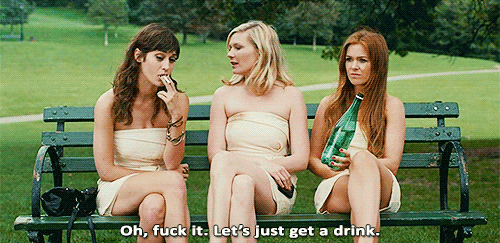
Three friends are asked to be bridesmaids at a wedding of a woman they used to ridicule back in high school.
Not sure how much of my enjoyment of this movie was due to one shot being an obvious Shining reference, but that's fine.
Scream (1996)
No such thing as a bad Scream movie, but the first one is the best.
Scream 2 (1997)
Because I have a box set.
Scream 3 (1999)
See aforementioned box set.
The Snow Queen (1957)
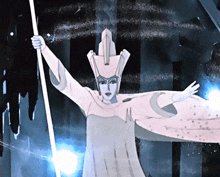
A young girl embarks on a perilous journey to rescue her friend, who has been taken captive by the Snow Queen and turned cruel by enchanted ice splinters.
This should probably count as a rewatch, but I'm not going to. This has always been one of my favorite fairy tales, and I love how lonely and yet determined this adaptation is.
Evil Dead (2013)
This movie still makes me sick to my stomach, but the emotional stuff hits harder every time.
Bill and Ted's Excellent Adventure (1989)
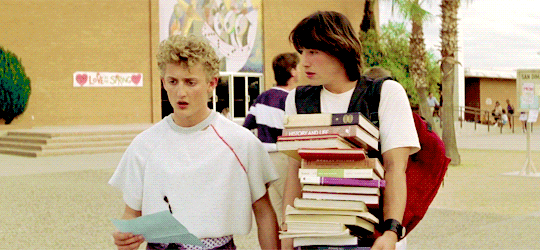
Two rock-'n-rolling teens, on the verge of failing their class, set out on a quest to make the ultimate school history report after being presented with a time machine.
After only ever seeing this in bits and pieces and memes and gif sets, I can FINALLY scratch this one off my list!
Bill and Ted's Bogus Journey (1991)
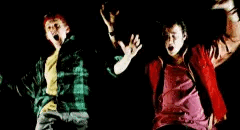
A tyrant from the future creates evil android doubles of Bill and Ted and sends them back to eliminate the originals.
Tubi had all three movies available, so I made a weekend out of it. It was awesome.
Bill and Ted Face the Music (2020)

Once told they'd save the universe during a time-traveling adventure, two would-be rockers from San Dimas, California find themselves as middle-aged dads still trying to crank out a hit song and fulfill their destiny.
Y'know what? This was a solid way to round out a fun, goofy (affectionate) trilogy. I loved it so much.
Insidious (2010)
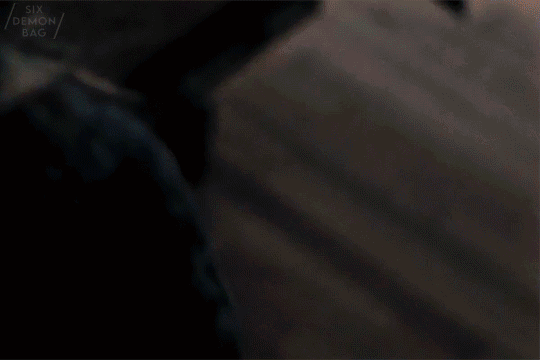
A family looks to prevent evil spirits from trapping their comatose child in a realm called The Further.
I like James Wan just fine, but I think I prefer when he's NOT doing ghosts. As it is, Poltergeist-but-it-ends-badly is...just fine. But that's all it does for me.
Fright Night (1985)
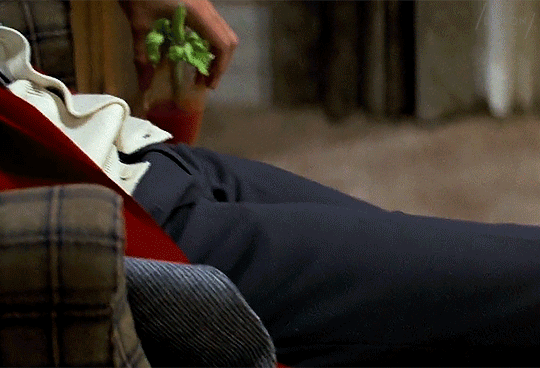
"Fright Night" sees a teenager believing that the newcomer in his neighborhood is a vampire. He turns to an actor in a television hosted horror movie show for help to deal with the undead.
This could have been shorter, tbh. There were a few scenes that felt like they went on a little longer than necessary, and tighter editing would have kept this from dragging in a couple spots. Other than that? It was great! It also put me into previously unknown territory of looking at Chris Sarandon and going 👀 which I...probably should have seen coming, if I stopped to think about it.
Resident Evil (2002)
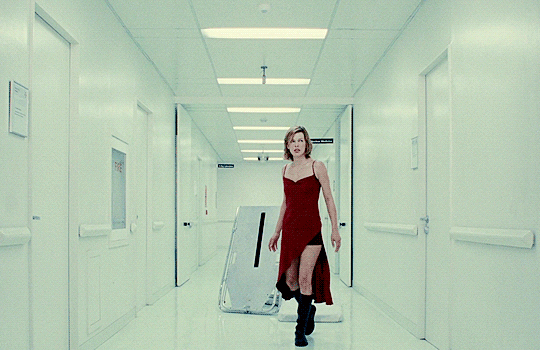
A special military unit fights a powerful, out-of-control supercomputer and hundreds of scientists who have mutated into flesh-eating creatures after a laboratory accident.
Not my favorite Milla Jovovich movie, but I still had fun.
The Craft (1996)

A young girl new to a Catholic school befriends a coven of witches whom the other students either shun or fear. But when a powerful invocation goes wrong, the consequences could endanger their lives.
UGH. I love this movie. The fashion, the music, the whole nine. What else do you want me to say?
M*A*S*H (1972-1983)
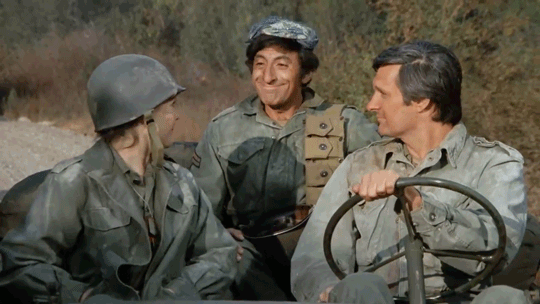
The staff of an Army hospital in the Korean War find that laughter is the best way to deal with their situation.
Desperate times call for comfort shows, and this one stays relevant. (Also, rest in peace, Loretta Swit. ❤️)
#watch a thon 2025#the outsiders#bachelorette#the snow queen 1957#bill and ted#insidious#fright night#resident evil#the craft#m*a*s*h
7 notes
·
View notes
Text
Introducing two other characters whose stories and arcs are a bit different than their film counterparts. Lo and behold, the Beserker siblings, Dagur and Heather!
In this world, Dagur and Heather are not separated at a young age, and instead are raised together by their father, who is still Oswald the Agreeable, and still mysteriously vanishes sometime after the events of the first movie, leaving behind his two children scrambling to protect the tribe in his absence. Rumors of foul play by either the siblings hand or some of the questionable company that Oswald found himself with, paired with the mysterious end to the dragon raids allowing the surrounding pirating raiders more chances to attack, have left the Berserker Tribe in a vulnerable and precarious position.
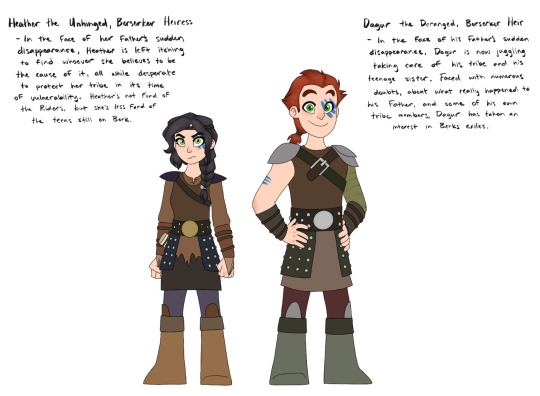
Heather is a proper, eager Berserker warrior, having completed the first of many tribal rites, being her own families coming-of-age ritual. But she has not yet earned all the same marks as her older brother yet, and with their father missing and presumed dead, she’s desperate and determined to catch up and prove she has what it takes to defend the tribe. Heather has much of the same mentality that she had at the beginning of Race to the Edge, determination to get vengeance for any wrong sent her way to the point of being willing to do almost anything to achieve her goals. Heather is about roughly a year older than most of the teenage cast from Berk, bar Ant and Kari who are tiny in comparison, and closer to being of the age where she is considered capable of taking on more leadership roles amongst her tribe. She’s still young however, and faces scrutiny from many of the elders of her tribe, and most of her fathers old council, on wether she has what it takes to be a potential Chieftess, in light of her brothers conflicting interests as time passes. Heather looks up to her brother, but thinks that his mind is focused elsewhere, and that their tribes survival and safety should come first, as well as the fate of their father.
Shortly after the sudden end to the dragon raids, Berk has produced its first exiles since Alvin the Treacherous however, a group of teenagers not much younger than Heather herself somehow riding dragons. Heather is enamored with the prospect of being able to control and ride a dragon, especially in her tribes trying times, and with her eyes set on the outer Archipelagon breed rider by the youngest girl, Heather is determined to learn how the riders did what they did, and get her own dragon. She’s not fond of the riders though, with them being a constant nuisance with the Berserkers dragon hunting trips, but Heather dislikes the teenagers on Berk that are chasing the Riders even less. Their tactless pursuit of the exiled Berkians brings Berk closer and closer to Berserker Island, and the still uncertainty of leadership that they are struggling with.
Dagur himself is still the Deranged. He’s earned marks of tribal rites completed and feats of truly impressive Berserker standard. But with a little sister to grow up with, Dagur had a standard to meet, and an impressionable little sister to hold an image for. Dagur prided himself on being the ultimate big brother, teaching his little sister all the cool stuff an older brother should clearly teach, like how to throw knives, and shoot a crossbow, and how to terrify your enemies with a fearsome Berserker battle cry. As the eldest of Oswalds children, the role of Chief falls to Dagur. Dagur isn’t certain his father is actually dead though, so refers to himself as the ‘acting’ Chief until Oswald returns. Most of Oswalds council and some of the elders of the tribe though are acting strange about their Chiefs disappearance, and some of the villagers are whispering about wether Dagur or Heather had a hand in their fathers disappearance. Most eyes are turning to Dagur, the next in line for the Chieftain title, as both the prime suspect, and as the answer to all the problems the tribe is facing, and Dagur is trying to keep those whispers, the tribe, and his wonderfully Berserk younger sister in line. The exiles from all the tribes that even the Outcasts won’t take are circling the Berserkers borders, and Dagur hasn’t told Heather about the strange whispers of an outer Archipelagon, underground trading route that’s becoming a potential problem.
But with the raids mysteriously ending, exiles from Berk that have been spotted on the backs of dragons have started becoming more and more involved in the happenings of the Archipelago, and Dagur is pleasantly surprised to see they’re mostly the same age as his sister. The littlest of the group, an outlander boy he recalls seeing in Berks forge on the peace treaty trips he’d attend with his father, rides a dragon that is eventually revealed to be the mysterious Night Fury. Dagur, who had always desperately wanted more little siblings, and after a chance conversation with Ant, decides to get Heather and himself a little brother. After getting to know the other riders through more chance encounters, Dagur later becomes fully committed to getting himself that gaggle of little siblings he’d begged his dad for when he was eight.
Things don’t go nearly anything like the siblings were expecting though, after a coup amongst their own tribe forces the siblings apart, Dagur exiled under accusations of being behind his fathers disappearance, and Heather using every means she can think of in order to rise up within the ranks of their own, usurped tribe, being too young to become Chieftess in both her father and brothers absence. Dagur sets out to find their missing father, his search taking him to that underground trading route, where he comes across a transported outer Archipelagon dragon from some fighting ring, apparently called a Triple Stryke.
This switch up from the films is meant to be a soft role swap, with Heather being the Berserker sibling that eventually teams up with Viggo and Ryker, and Dagur being one of the first people the riders convince to give dragons a chance, and then become a Dragon Rider. I also really wanted to play with that mindset Heather was showing when she first showed up in RTTE, someone who was willing to do anything to get the revenge she felt was owed, while Dagur is a little more stable and sane, though his general Berserker attitude and enthusiasm, and his optimism on his dads fate still make him come off as a little insane to anyone who doesn’t know him. It’s a strained relationship between him and Heather for the majority of the story, and there are rough patches between them, especially with Dagur unwillingly abandoning Heather to come to her own conclusions and opinions on certain events and topics, but they’re never really super antagonistic towards each other, and the end goal is for them to still wind up where they did in canon in regards to their relationship with each other.
Featuring a closeup of them. Also, I’ve noticed the pictures are blurry until you tap on them, which annoys me a little, but, whatever
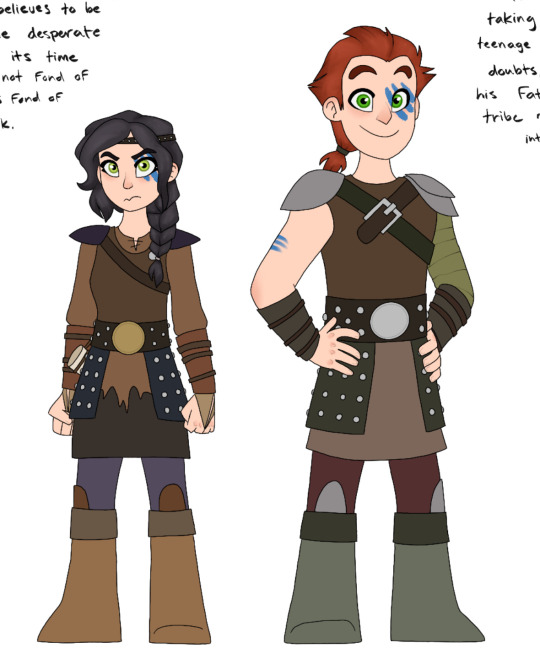
#i did not draw Dagurs helmet#because i did NOT want to deal with those horns he’s got going#boy is dramatic and it shows in his helmet#Dagur gets empty nest syndrome after being exiled and ramps up the efforts adopt the riders and Ant#when he meets Fontaine he’s like ‘they come in matching sets!!’#the deep 2015#the deep cartoon#httyd#dagur the deranged#httyd heather#still labeling this with ‘the deep’ tags cause it’s my crossover AU#edit: following tag#httyd/the deep crossover
26 notes
·
View notes
Note
I’m glad the Mary Sue discourse surrounding Zoey has died down. Being in the fandom was tough back then, because the allegations just…weren’t true?
Some said that Zoey was perfectly boring (or boringly perfect?) which is false. She is a flawed character. Frequently, she’s gullible and gives people the benefit of the doubt way more than she should. See: Scott in ROTI, Mal in AS. She can even swing to the other side of the pendulum and become too ruthless, as we see in her alter ego Commando Zoey.
Others said her kind, mild personality was also boring, but I feel that it’s underappreciated. In a season full of strong personalities and villains, some of whom are directly based on pop-culture icons, you need 1 or 2 cast members who are grounded. Zoey’s character provides relief from the Scott’s schemes, Jo’s zingers, Lightning’s self-obsession, Sierra’s Cody-obsession, etc. She comprises some of the only friendships that canonically survive Total Drama’s…well, drama.
People say she’s too fixated on Mike to showcase her indie-chick stereotype, and while I partially agree that she should’ve had more confessionals outside of Mike or Mal, Mike’s storyline felt just as tied to Zoey too. While his ROTI storyline is about struggling with his DID secret, Zoey is the focal point of it in that she’s the main person Mike is scared of revealing it too, and in All Stars, Mal is the main person duping Zoey and ultimately clashing with in the finale. Not to sound cheesy, but their very first appearance is them making googly-eyes at each other. The “star crossed lovers” plot was always going to intertwine them, and that’s not a bad thing!
Both characters got time to have their personalities and interests showcased outside their romance, like Mike and Svetlana’s gymnastics, his and Zoey’s mutual love of action movies, Zoey’s New Age interests like tarot cards, her clothes-designing, etc. I’d even go as far as to say that between Gwent’s 22-episodes of competing together (16 episodes of Island, the Island finale, 5 episodes of Action) and Zoke’s 22 episodes of competing together (9 episodes of ROTI, 13 episodes of AS), Zoke has the healthier relationship, the more cohesive development, and the more cathartic resolution. Not to knock the OG Total Drama summer-camp romance, of course (shout out to The Big Sleep).
So yeah, I’m glad more people are appreciating Zoey’s character and storylines more (or at least, not hating it as much).
Here’s my opinion that no one asked for:
zoey was definitely meant to be the “main character” of her season. I think Zoey is supposed to be the POV character. Not necessarily because she’s BORING, but because she’s relatable to a large chunk of the TD audience circa 2012 as a naïve, socially-awkward alternative teenage girl. I think for a lot of people, when you’ve got a cast as weird as the others in ROTI are, that comes off as Mary Sue-ish. If you took zoey out of ROTI and placed her alongside a more subdued cast, I doubt anyone would be saying that about her (for example, if you kept everything about Zoey exactly the same and put her in season 1 instead). Like I said in an ask recently, ROTI might be my favorite cast— but I don’t think it’s my favorite season.
All that aside, the thing that made me love zoey was during the bathroom argument with Jo and Anne Maria, when Anne Maria makes fun of her by calling her Princess Leia, to which Zoey says that her hairstyle is actually more like Padmé Amidala.
(Anne maria responds with “more like padmé Ami-dork-a!” Which is also hilarious)
As a Star Wars fan whose favorite character is padmé Amidala, I appreciate every mention of her I can get, especially since lucasfilms seems to forget she exists. Thank you Zoey, for doing what lucasfilms won’t
14 notes
·
View notes
Text
2024 Book Review #17 – Terra Incognita by Connie Willis
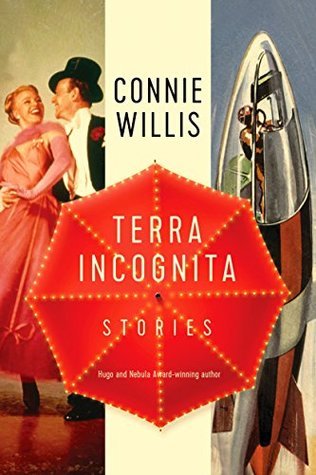
Connie Willis is a name I have heard come up a lot with regard to late 20th century American Science Fiction, but in a slightly odd way. The only thing she’s actually written that I’ve ever heard of is To Say Nothing of the Dog (a delightful-sounding book that tragically has a multimonth hold list at my library). Instead, I mostly know her from other books’ acknowledgement sections, or semi-mythologized folklore and anecdotes about the culture and community of the era. So I really picked this up as a matter of curiosity, to get a sense of what Willis’ whole deal is.
The book is a collection of three novellas, each basically totally unrelated with only the faintest attempt at a unifying theme to justify bundling the three of them together. Each work is pretty different from the others in everything from length (the longest is something like 3x the length of the shortest), tone, setting and subject matter, the works really. The first is a sort of romcom farce about surveyors charting an alien world that has, well, aged. The second and longest a love letter to classic classic hollywood and movie musicals as told from the POV of a self-hating drunk who pays the bills going through and retroactively editing the studio’s back catalogue to meet the whims of the executive of the day. The third and by far shortest is a lighthearted and very fannish comedy about a teenager getting conscripted to be a space cadet against her own ferocious objections.
The stories are all perfectly modern in, like, structure and pacing, but they still absolutely feel like they were written last century. Part of that is just word choice (the only thing that ages worse than old euphemisms for sex is old attempts to create futuristic slang), but it’s also just a general sensibility. Which is most cringe-inducing in the first story, both for its portrayal of the native species of the planet being surveyed (directly compared to native americans a few different times, characterized as relentlessly opportunistic penny-wise but pound-foolish hucksters leaping at the chance to sell their land for cheap imported consumer goods), and also just for a handling of gender and sexuality it’d take more time than I’ve got to really dig into. (I have a sense of where all those tomboy versus girly girl memes ultimately descend from now, though.) The other two more just felt out of time than actually wince-inducing, with the third story especially feeling like an affectionate nod to the fan culture of a different era. That said, the second one’s whole horrified preoccupation with a Hollywood that refuses to make anything new instead of just remaking the same sure things from its back catalog forevermore either never stopped or has looped back around to feeling real topical.
Insofar as I’m already reading romances, I admit I do have a real soft spot for the whole ‘idiots compensate for total refusal to communicate feelings with grand romantic gestures and hoping the object of their desires will get the idea. It doesn’t work.’ thing that’s a bit of a recurring beat in two of the novellas though.
Prose and characterization wise, all three were pretty well done – though riffing off tropes and archetypes that I honestly can’t remember the last time I’ve seen played sincerely and unironically, which did always leave me feeling I was missing context on how to read them. Which is pretty much what I was hoping for going in, to be clear – what’s the point of reading older stories, otherwise? Which is nice, because the actual reading experience of going through it was a bit of a slog. The first one was the real trial, but just overall I’d say the book’s more interesting as a cultural artifact than an artistic work. Oh well, c’est la vie.
25 notes
·
View notes
Note
favorite female characters? not from HP but in general.
Well, I have many, but I’m going to mention the ones I remember because I’m terrible at making lists like this on the spot — I always forget people — so I’ll just say whoever comes to mind.
Lady Bird: from the movie Lady Bird by Greta Gerwig. If anyone wonders what I was like as a teenager, I was very much like Lady Bird (terrible story with the typical soft intellectual boy who smokes and reads Tolstoy included). I’ve never felt so identified with a coming-of-age film. That movie was literally me, including the complicated relationship with her mother — mine and I didn’t get along back then — and also the crash-and-burn experience of going to college, plus the pretentious aspiration of being part of an intellectual elite like the Beat Generation. The only thing that didn’t happen to me was trying to fit in with rich people and having a boyfriend who turned out to be gay, but the essence of the movie is very similar to my adolescence. I’m from a mid-sized city that felt too small at the time, and I went to a Catholic school. That character stirs a lot of emotions in me.
Brooke from Mistress America, also wich is por trajes by Gerwig. Basically, I’m Brooke now. Greta Gerwig and I must be soulmates or something because for some reason her female characters always have qualities I deeply relate to. Or maybe we’re just two highly dysfunctional people who don’t really know what to do with our lives. This also leads me to Frances from Frances Ha.
Julie from The Worst Person in the World, another character I strongly relate to. In this house we love young adult women with clear attachment issues, chaotic and aimless lives, low-key depressed, semi-alcoholic, and with disastrous personal lives.
Cassandra from Promising Young Woman. Crafting a perfectly planned revenge to ruin the lives of your best friend’s abusers after they drove her to suicide? Something I’d totally do. I love her.
The protagonist of My Year of Rest and Relaxation by Ottessa Moshfegh, who remains unnamed. Basically, a girl bored with life and deeply depressed who decides to take a sabbatical year popping every kind of antidepressant, anxiety med, tranquilizer, hypnotic, and psychiatric drug to spend the year sleeping and watching Whoopi Goldberg movies. An absolute queen. We stan.
Elle Woods from Legally Blonde. Always rooting for women who perform traditional femininity while proving they can be fashion-obsessed, beauty salon-loving, ambitious, brilliant, and determined to make the world a better place. Let’s protect the Elle Woodses of this dark, hostile world — we need them to keep the darkness at bay.
Emma Woodhouse from Emma. My favorite Jane Austen novel and my ultimate heroine. Emma is like a mix of Elle Woods and Blair Waldorf. Many people adore Lizzie Bennet because they think she’s super badass, but there’s no one more badass than Emma Woodhouse. In a time when all women were husband-hunting, she was perfectly content living with her father. She literally mentions that her father will leave her a huge inheritance, and she doesn’t need kids because she already has her nieces and nephews — so why rush? She’s super frivolous but has this childlike charm that makes her adorable. She can be insufferable and even a mean girl, but she never acts out of malice — she just lives in her own bubble. Also, the best Austen hero ever is Mr. Knightley. He’s the ultimate “my future wife is my best friend, and I love her so much that I’m willing to leave my mansion to live in hers with her quirky dad because she doesn’t want to be separated from him.” Such malewife vibes. We love malewives.
Katniss Everdeen. Katniss is fed up with everything and just wants to die. She’s not a compliant or pleasant protagonist, and I love that. Many people dislike her because she doesn’t fit many typical narrative standards for female characters, and we love her for that.
Sansa Stark: Hating Sansa Stark is pure misogyny, period. Sansa is the most realistic female character in the entire saga, and that’s why everyone hates her. She’s not about muscles, swords, dragons, or powers. Sansa is about brains, learning, growth through hardship, cunning, and manipulation. We love our damsel-in-distress-turned-political-strategist. A true survivor. I love her; if anyone messes with her, I’ll fight.
My beloved Lila Cerullo and Elena Greco from My Brilliant Friend by Elena Ferrante. If you haven’t read The Neapolitan Novels, you’re seriously missing out. No one has captured the complexity of female friendship over the years like Ferrante. No one has portrayed femininity in a patriarchal world better. It’s a story about violence — all kinds, from physical to structural and political — against women, class violence, and social violence. It’s a story about love, loss, generational change, and the turbulent twists of the 20th century. But above all, it’s the story of two girls, two teenagers, two women navigating a violent world that tries to shut them out from the start — a world they must carve their way through, blow by blow. Two women who are two sides of the same coin. Two women who represent passion and reason, natural talent and hard work, lack of opportunity and breaking new paths, physical violence and psychological manipulation. But most of all, two women bound together since childhood by a complex, toxic, beautiful, and tragic friendship. This saga will break your heart but also fill you with life. It’s truly magnificent.
And well, I can’t think of any more right now, but if you’re familiar with these, you’ll get a sense of the type of characters I enjoy.
#q&a#q&a time#female characters in media#female characters#my girls#Emma Woody puse#elle woods#frances ha#mistress a Erica#lady bird#the worst person in the world#promissing young women#my year of rest and relaxation#katniss everdeen#sansa stark#lila cerullo#elena greco#lenú greco
8 notes
·
View notes
Note
i'm the opposite of you when it comes to booksmart vs. bottoms (i think booksmart is p much perfect and the only thing i liked about bottoms was ayo's wardrobe) and I was just wondering if you would expand upon how you felt about each movie. i was so excited for bottoms so it was disappointing when i didn't like it.
oh man i have not watched booksmart since it came out in 2019 BUT i personally just found it pretty unfunny and some of the aspects that are meant to be empowering for women and teen girls just came across very. insincere and surface level to me. best example i can give is the two main characters saying “malala” to each other as a code word in their friendship? to me that is very 2012 leslie knope #im with her writing where they think simply namedropping an outstanding feminist public figure in a throwaway joke makes their movie overall More Feminist. like look we mentioned malala! when really they’re invoking her name without any substance, yk? i don’t really know why we’re supposed to applaud beanie feldstein’s character for finally seeing the girls around her as people with their own skills and values at the ripe age of 17 years old and then giving a big speech at graduation where she’s essentially like “hey good news i finally see you all as people :)!” BUT i do think it has some funny jokes and a rlly good cast
bottoms to me is just endlessly funny. i do get that it has a very specific type of humor that probably is not for everyone, the incoherency and surrealism of the world the characters live in might be off putting or frustrating for some viewers. i love bottoms because pj and josie, to me, feel like real teenage girls instead of the personification of feminist bumper stickers with catchy slogans. i love that they are not setting out to change the world, they literally just want to lose their virginity and have lesbian experiences. i think one of the funniest jokes in bottoms is when hazel says like “if we keep this up we might be able to take on huntington you guys” and pj responds “no if we keep it up we can put our fingers inside each other, grow up” like her ONLY goal is to have lesbian sex and to me that is so real and refreshing. plus, the movie doesn’t frame pj and josie at the end as these models and paragons of feminism, but rather as real girls who are figuring out their own wants and desires
i guess i would say i simply identify more with pj and josie’s experience in high school. josie definitely understands the value of a community of girls coming together and learning self defence, buttttt that ultimately comes second to her crush on isabelle. that feels authentic to me. josie and pj do not consistently model textbook feminist practices (pj’s favorite show is entourage, she’s not a feminist!!!), they antagonize and manipulate other girls, and they really only understand the value of their community of other girls at the end of the movie. BUT that all makes them feel more like real people than the characters in booksmart to me, and the narrative doesn’t frame them as heroes that we need to be looking up to. if anything, the end of bottoms acknowledges that they are murderers <3
to me the strongest and most empowering women in fiction are those who feel realistic and true to life, and i literally feel like i’ve met pj and josie as a teenager. the characters in booksmart, as well acted as they are, didn’t feel authentic to me when i was 18 years old watching it just post-graduating high school myself
21 notes
·
View notes
Text
Anastasia Marie Monroe <3

CHARACTER SYNOPSIS: Born to a teen movie star and a soon-to-be NASA scientist, Anastasia was one of many Gotham darlings! From the moment she could walk, she was a pageant winner - getting titles from Little Miss Gotham to being a runner up for Miss America!
It didn’t come without it’s issues - she struggled at times emotionally and mentally, all trying to impress her mother and ultimately decided it wasn’t the life she wanted to live.
Luckily, she applied for Gotham’s top university and scored perfectly on the exam, thus starting her med school journey (much to her mothers dismay).
Now she’s begun her career as Gotham General’s newest ER doctor!

TIMELINE: I imagine Anastasia is around the same age as Bruce Wayne and all the other lovely socialite OCs around that era as well! I imagine they all kind of have their own social circle full of drama and gossip from when they were teenagers!

trigger warnings and other disclaimers below the cut!
the following trigger warnings may be on this page:
ed’s, medical talk and mentions of procedures, injury, emotional abuse, child abuse, cheating, just overall poor parenting (not from anastasia).
other disclaimers:
mun is 18, so nothing suggestive unless you’re 17+ and definitely nothing flirty if you’re younger than that!
ALSO!!!!! if you’re like hmm this and ur other rp account @katyaisnotpinpoint look familiar… ding ding ding!!!! that is intentional since anastasia is her mother!
these are ocs ive had before hand and then now kinda made a dc alternative universe with them, both are blonde haired and blue eyed but istg i dont have same face syndrome happening with my ocs HAHAH
the pfp is a clipping from another supergirl comic and it’s unedited! link to where i found it is here!
3 notes
·
View notes
Note
i was wondering if you could make headcanons of the haikyuu girls’ (kiyoko, miwa kageyama, michimiya, and maybe yachi) reaction to the reader writing her first novel 🤭
OMGOMGOMG I LOVE THIS IDEA
(also my first req from you?! heheh)

shimizu kiyoko ;
omg she’s so so so supportive of you
okay so. let’s say you’re writing a crime novel— at this point in time, she doesn’t know that you’re writing one.
one day, she walks into your office to see you researching murders, murderers, and how they got away with their crimes for so long.
she knows that you’re into true crime and things of the sort, so she brushes it off!! she’s kinda like ‘eh okay, that’s normal’
but, it’s when she sees you acting out a murder with your figurines, that she gets concerned. (plsss she just wanted to bring you food)
anyways, she questioned you about it and the embarrassment you experienced was unbelievable.
you had to explain that you were figuring out some stuff for the novel you’re writing and it all just— clicked for her.
OH and if you ask— she’ll give you pointers and correct any grammar or spelling mistakes you might have (i just KNOW she’s a pro at literature).
kageyama miwa ;
she puts her ALL into supporting you!!!!!!!
you’re writing (drum roll) an adventure/sci-fi novel!!! (because i feel like she’d like those, can’t tell me otherwise bye!) maybe it’s something like journey to the center of the earth?? city of ember???
you guys have movie nights together!! and usually your pick of genre is WIDE but recently it’s been strictly adventure/sci-fi— which she’s not mad about!! just curious!
when you’re scrolling through a streaming app, she asks about why you’re choosing just adventure and sci-fi.
at first, you didn’t wanna tell her cause you wanted it to be a surprised!! but she pulls it out of you with her charm (aka you broke bc you’re bad at keeping secrets)
she’s so excited for it!! she’s excited for you!!!
she’s always asking questions about how it’s going and always asks about your characters!! (and when she finds out you based one off of her she’s just so happy)
she’ll ask to read snippets here and there but ultimately she just lets you work until you’re ready for her to read!!
michimiya yui ;
giggles, blushes, twirls hair… she’s your number one supporter!!! the first to buy your book in ALL forms. (also, i never thought of writing for her— how stupid am i for that???)
soooo you’re writing a coming of age story!! maybe something based on your own experiences??
lets sayyy… you had some diaries or journals when you were a teenager and you dug DEEP in your closet to find them— which made her very curious.
she kinda lets it go for a bit until you’re nearly tearing up your closet to find this specific journal. then she’s just like ‘wtf are you doing?’
when you tell her you’re working on a novel— she’s so happy about it!!
she loves to support you in any way she can!! she offers to be your beta reader and who are you to deny her of such things???
she’ll give you pointers and find any plot holes there may be in your story!!
yachi hitoka ;
this absolutely cutie <3 she’s your biggest supporter and motivator!!
wanna know what you’re writing? fantasy. (because she’d love that and i love her) maybe something that’s like where the wild things are?? or over the garden wall??? (pls i love otgw)
anyways— she’s starting to notice that you’re always on your computer nowadays and sometimes you accidentally ignore her.
she’s a non-confrontational person but, she works up all the courage to talk to you about this— and i’ll be so real with you, she cries before a single word comes out. (just like me fr)
god the utter fear that rushes through you— you thought she was dying or smthn!! she starts talking while she’s crying and THANKFULLY you’re able to piece together what she’s saying.
when you explain to her that you’re writing a novel, she feels so much relief (and embarrassment tbh)
now we know this girl is smart, it’s canon!! so you ask her for some help with grammar, sentence setups, etc!! and she’s very happy to help!!!

pls i hope this was good
(my writer’s block has been slowly leaving!!)
#haikyuu x reader#haikyuu headcanons#shimizu kiyoko#kageyama miwa#michimiya yui#yachi hitoka#hq x reader#hq headcanons#=ộ⍛ộ= works
32 notes
·
View notes
Text
honestly i don't buy at all into the "marvel will Never let peter grow up again" doom and gloom. i do think we're gonna get peter and mj reconciling and having a kid in the main comics. to get tinfoily about it, part of me thinks it's happening in like 2030 or so.
i know. i know. but humor me.
editors change.
the people barring this status quo from returning will eventually retire or leave their positions. if someone who does want it takes the seat... then the limitation's gone. not to mention that the current editors might change their minds. especially since...
the slow proliferation of media showing peter married to mj and being a dad is a proven success.
hickman's ultimate spider-man. renew your vows. peter's supporting role in the spiderverse movies. tobey maguire's spider-man casually revealing he's married and has a daughter in no way home. the insomniac games showing peter and mj moving in together halfway through their trilogy.
marvel's been sticking their toe into this pool for a while, and it's a hit every time. they've gone from floating the idea in obscure aus to cameos in major movies. they know the fans love it and the general public will accept it. meaning, they know they can make money off letting peter grow up.
which means there's only one more problem. which has already been solved.
miles exists and has been proven to be massively popular.
the biggest pushback to peter growing up -- "if he grows up, who's the young man for the audience to relate to now?" (... bc i guess we're not ready to expect boys to relate to mayday the way we expect girls to relate to miles 😐) -- has been solved. because now there is one, and marvel knows he's a cash cow. you want to tell spider-man stories set in high school, with a diverse supporting cast? well, miles is your guy. you want kids to imagine that peter's their cool big brother/teacher? well, miles is there for them to project onto.
they tried it with ben reilly and it didn't take (ben being the same age as him probably contributed to that). but miles went the distance.
thanks to the spiderverse movies, and a huge presence in video games, cartoons and other media, he's set. he's the default teen spider-man for any kid under 20, and because of marvel's 1:4 year time dilation, miles will be in high school until after btsv comes out/2030 at the earliest, and he won't be out of college age until like 2045.
miles will be the default young adult spider-man for the next 20 years. it's only a matter of time before he gets live-action movies that'll just cement the status he already has.
especially given that...
mcu peter is the default peter for the general public, and he can't not grow up.
the mcu isn't gonna wrap up willingly. it's going to go out like the dceu: slogging out new content until it bombs so consistently that they quietly stop making it. it's had a lot of misses lately, but we're not at that point yet. especially not with spider-man movies. (the sony villainverse is something else.)
until then, we're not getting another cinematic peter parker. the marvel-sony custody battle over him is intense, and i doubt disney's gonna spring for a teenage spider-peter competing with theirs. (at this point i even doubt they'll even let sony make miles solo movies now that they know he makes them this much cash)
so, the default peter parker in live-action is tom holland's. it'll be that way for at least another decade.
and he's definitively done with high school. he will, in about five years, be definitively out of his college era too (whether or not peter actually gets to go to esu, holland will be too old to look like it). they won't recast him. they can't deage him. they might try to bring in a ~variant~ of him from another dimension, but that's NOT gonna go over well. peter will have to grow up and stay an adult until the mcu gets flashpointed.
holland's already said he's planning to eventually take a step back, if not retire completely, and he's enthusiastic about introducing miles (who already exists in the mcu as a young kid, since aaron mentions him). he's also marrying zendaya, so there's no chance peter and mj aren't endgame. i'll bet you $20 that their onscreen counterparts are going to get married too, and that peter and mj's wedding will be the bookend to peter's status as the live action default spider-man, right as miles inherits that title. one spider-man's officially an Adult, so in comes a new one.
and in the event that the mcu somehow survives long enough to give miles a high school and college trilogy... well. mcu miles will age out of being young eventually too. introducing mayday's spider-girl and having miles mentor peter and mj's daughter is the logical next phase in the franchise, and a way to bring their dynamic full circle. (and given that mcu mayday would be mixed... well there's another thing for her and miles to bond over and another reason for her to need his mentorship specifically)
((not to mention that "i'm a father now" is an organic reason for peter to retire from being spider-man that the audience will accept. assuming peter isn't killed off 🤞.))
... which means peter and mj have to have a daughter first. and you know the general audience loves babies ever after endings for their couples. so if a movie ever shows live action peter and mj being parents... come on. you know people would love that shit. put a one-minute postcredits gag scene of miles babysitting mayday in his solo movie and its gonna crack a billion.
... spider-man legacy issue 1000.
we're already around issue 950. we've got five or six years before we hit that gigantic milestone. it'll happen right around the same time the spiderverse movies will be wrapped up/sony will definitely be trying to make live-action miles (and therefore adult, married peter) happen.
look i know my tinfoil hat's on. but on top of the stars aligning with movie synergy, and there being overwhelming support for the storyline and a growing consensus that it's just where peter's character is going, what better celebration of the character could marvel give us than having peter and mj remarry and start a family. you can't ask for better timing.
6 notes
·
View notes
Text


By: Joseph Burgo, Ph.D.
Published: Jan 17, 2024
As my thoughts began to coalesce around the subject of this essay–adolescents in history rebelling against their parents–memories of an old movie from my childhood kept coming to mind. Even readers who haven’t seen it have probably heard the name–Gidget, a low-budget California beach movie starring Sandra Dee, James Darren and Cliff Robertson. It was released in 1959 and spawned two film sequels, two TV series, and several made-for-television movies. In early December of last year, I tracked down the original Gidget on YouTube and watched it again–some 50 years after I’d first seen it.
The title character’s obsession with surfing, and her transformation from tomboy to infatuated teenager and finally to wise young woman don’t concern me here. It’s the subplot focusing on two other characters that resonates with my subject matter. Kahuna, a man somewhere in his late 20s or early 30s, lives in a shack at the edge of a surfing beach. After serving as a pilot during the Korean War, he has decided to drop out of society and live as a bum, following the sun and traveling the world in search of waves. His only true companion is a parrot named Flyboy, although the gang of teenage surfer boys who hang around him that summer look up to Kahuna as their leader.
One of those surfers, nicknamed Moondoggie, is home for the summer after his freshman year at college; he has resolved to drop out instead of returning to campus in the fall, team up with his hero Kahuna, and pursue the life of a beach bum. Both men have rejected the rules-driven adult world. Neither wants the responsibility that comes with adulthood, viewing it as a kind of prison. In a gesture of defiance, Moondoggie tears up the allowance check he has received from his father and vows to go it alone.
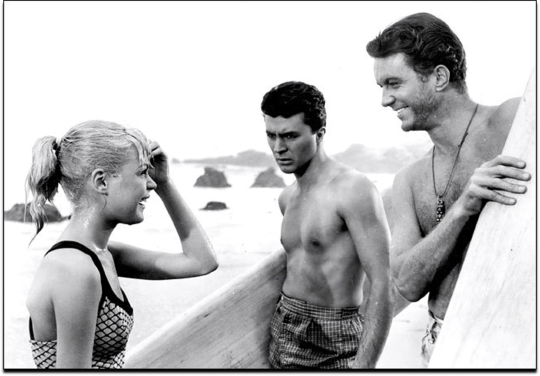
[ Sandra Dee as Gidget (left), James Darren as Moondoggie (middle), and Cliff Robertson as The (Big) Kahuna (right) ]
In 1959 when this film was released, Western Civilization was on the verge of major social upheaval as youth culture began challenging long-standing social norms about sexuality, marriage, and family. But there on the cusp of this revolution, Gidget’s world seems confident that the generation of young people coming of age will eventually submit to the values of their parents. At the outset, Moondoggie and Kahuna are both adolescents rejecting the authority of the existing social order; but in the end, they embrace it. Kahuna gets a job as a pilot. Before returning to college, Moondoggie gives Gidget his pin, a promise of future marriage and a new generation of children to come.
Adolescents rebelling against the authority embodied in an existing social order and eventually becoming reconciled to it—this is a story we’ve been telling for generations.
By identifying as “trans” in today’s youth culture, adolescent rebellion has found a new way to express itself. I don’t want to be simplistic about the society-wide dynamics here. There are other obvious factors involved: a permissive social order in which it’s hard to find any behavior extreme enough to count as true rebellion, for example, and a social media landscape that makes teens feel insecure, insignificant, and desperate to prove they’re unique. But here I want to talk about the way a rebellion against authority can fuel trans-identification in our children.
My 16-year-old client Sophia, for example, had given her parents no trouble as a younger girl. For most of her childhood, she’d been a respectful daughter and a good student. Because her family had moved around quite a bit due to her father’s shifting business, she hadn’t made close friends and rarely socialized outside the family. Her mother had always taken an active interest in Sophia’s schoolwork and athletics. And then one day, Sophia announced that she was trans, told them she wanted to be called Finn, and insisted that her parents use he/him pronouns.
I’ve had other female clients with a nearly identical background, and I’ve heard similar stories from other parents who’ve consulted me about their trans-identified teens. The announcement often comes out of the blue following a mostly non-conflictual childhood, causing a lot of angst and opening a rift between child and parents. Nothing the parents say–no evidence they bring or logic they apply–makes any difference. The child rejects it all from a place of absolute certainty. “I know I’m trans,” they’ll say. “I’ve always known it.”
These children have often been a bit different from the other kids, struggling to fit in. Maybe they were highly gifted or on the autism spectrum. They might just have been “quirky” and beloved for it by their parents. But especially during the teen years, the need to belong to one’s peer group overrides almost everything else; and as American teens have done for generations, these quirky kids reject the values of their parents for new ones held by other kids their own age, especially as they pertain to sex and gender.
Back in the 1970s, Goth became the dominant form of youth rebellion. The Goth scene rejected traditional sexual mores while celebrating new and occasionally deviant forms of sexuality. There are obvious similarities between that movement and today’s transgenderism. Dr. Az Hakeem, a British psychiatrist with extensive experience treating gender distress, has actually referred to Trans as “Goth 2.0.”

The main difference between the two is obvious, however: teens and young adults immersed in Goth might have pierced or tattooed their limbs, but they didn’t have healthy body parts removed by surgeons. They no doubt consumed illicit drugs, but not off-label anti-cancer medications and cross-sex hormones that may leave them sterile. Once they grew out of Goth, young adults were probably left with a few embarrassing tattoos or piercings but no other visible scars, unlike detransitioners today who may be scarred for life.
Contempt for parents often plays a role in youth rebellion, be it mild or toxic. Back in Gidget’s day, the kids were hip while the adults holding onto their old-fashioned ways were square and not at all with it. Today, moms and dads who quaintly cling to the duality of biological sex are clueless about the multiplicity of possible genders; if they refuse to affirm their child’s new identity, insisting it’s impossible to change from one sex to another, they’re deemed transphobic and therefore unworthy of respect. Most of the trans-identified teens I see in my practice feel and express utter contempt for their mothers and fathers. Two of them will turn 18 within the next six months; they both regard their parents with scorn and intend to have no further contact after coming of legal age.
Behind the contempt, I sense a lot of terror about impending adulthood. The teens in my practice look forward to their medicalized transition as if it will be a major accomplishment, more significant than anything else they’ll ever do, but they have little understanding about how to lead a responsible adult life. I often say to my young clients that transition is not an achievement: they still have to figure out what career they’d like to pursue, and how to make enough money to support the lifestyle they want. One of these clients poo-poos the very idea of earning money and insists she’ll live in a camper van, free from responsibility. Another imagines devoting her life to collecting vintage motorcycles, believing that about $30K per year is all she’ll need. None of them ever imagines having children or building a family, much less planning ahead for retirement. They have a narrow vision of their own future that seems to go no further than attaining the freedom to start taking cross-sex hormones.
In this sense they remind me of Kahuna and Moondoggie, those two characters from Gidget in flight from the responsibilities of adulthood. While my clients apparently look forward to escaping their parents’ control and attaining the legal right to make their own choices, they don’t really want the responsibilities that go along with such freedom. On some level, they see transition as an escape from the dreaded reality of adulthood, a triumph over the tedious world of facts, financial obligations, and inevitable limits.
There’s another classic film you might know, The Graduate, directed by the brilliant Mike Nichols. Benjamin Braddock, the main character, spends most of the movie rebelling against the limitations and responsibilities imposed by the real world, the world of his stodgy parents; at the end, after he has relentlessly pursued young Elaine and disrupted her more-or-less forced marriage to another man, the two run off, she still in her wedding gown, and escape on board a city bus. The final shot shows realization slowly dawning upon them, their facial expressions collapsing from elation into dread.
Now what are we going to do?
At the close of The Graduate, Benjamin and Elaine realize that however fun and even exciting it might be to rebel against their parents, at the end of the day, they’ve achieved nothing beyond wrecking their families; in the aftermath, they’ll have to pick up the pieces and make a life for themselves in the real world. You can’t outrun reality, of course. It will always prevail in the end. In a softer way, you see Moondoggie and Kahuna coming to this realization at the end of Gidget.
For millennia, parental authority has been the primary means of transmitting a culture’s values: parents teach their children to abide by standards embodied in their culture, and the world-at-large has almost always supported the parents in exercising that role … at least until now. Honor thy father and thy mother says the Fifth Commandment; today, children learn that if Mom and Dad won’t affirm their new identity and use the designated pronouns, they should cut off those parents and embrace a new glitter family online. In California, a state court deprived Adam Vena of visitation rights because he wouldn’t affirm his four-year-old son’s new gender identity. The modern world often undermines parental authority when it takes a stand against gender ideology.
By severing ties between parent and child, a cult does the same thing; it appropriates parental authority onto itself as a way to bind members more tightly to the group. The votaries of gender ideology likewise subvert parents, replacing their guidance with cultish dogma. A great many influential forces today promote this dogma, from primary education to medical boards to professional associations–a society-wide rebellion against parental authority and, I would add, against the ultimate authority that is reality.
Every parent I’ve consulted with has felt helpless in the face of this phenomenon. Based on their love and better knowledge of their own children, they believe they know what’s best for those kids but feel unable to wield authority as parents to guide them. In my own case, when I insisted there were obvious psychological reasons why my daughter might have wanted to become a boy, I was treated with contempt by the medical establishment and colleagues in my profession. Meanwhile, all around my daughter, every influential voice in her world told her that I, her father, was wrong.
But I also believe that we, as parents, bear some responsibility for the erosion of our own authority. Many mothers and fathers today seem uncomfortable with the very idea of parental authority, preferring to be buddies with their kids rather than authority figures. Maybe we don’t want to be viewed as square or stodgy, droning on about antiquated notions like taking personal responsibility and showing respect for your elders. I remember the slight feeling of shock and discomfort I felt upon first hearing myself say the words “because I said so!” to my own kids. Why should I have felt so uneasy when exerting myself as the adult in charge and expecting my children to mind me?
Writing for The Atlantic, the psychologist Joshua Coleman says that family ties have shifted over the last century from a focus on duty and obligation to one promoting personal growth and the pursuit of fulfillment. He quotes the historian Stephanie Coontz, who says: “For most of history, family relationships were based on mutual obligations rather than on mutual understanding. Parents or children might reproach the other for failing to honor/acknowledge their duty, but the idea that a relative could be faulted for failing to honor/acknowledge one’s ‘identity’ would have been incomprehensible.” In our youth-driven culture, words like duty, obligation and authority sound almost quaint. Today there seems to be no valid authority outside of one’s personal “lived experience.”
What’s to be done? How are we as parents to regain authority and prevent our children from permanently damaging their bodies when a cultish ideology encourages them to do so? This is the question every parent of a trans-identified child would like to ask, I imagine, and I wish I had a simple answer. The longer I work in this field, the more I feel that gender ideology must be questioned in every area where it dominates; only if we loosen gender ideology’s stranglehold on our cultural institutions can we hope to return parental authority to its rightful place. Get involved in the pushback–that’s my advice to parents. Run for your school board, get to know your local politicians, challenge this new orthodoxy wherever you see it. Don’t play the pronoun game.
I’d also like to say something in particular about fathers. As a father myself, I’m concerned with specifically paternal sources of authority: What is the role of fathers in helping our families to navigate this crisis? Does paternal authority differ in any important ways from maternal authority? And where are all the fathers, anyway? I’ve had a few joint consultations with both parents of a trans-identified child but it’s invariably the wife who does the talking. More often, I have consultations with the mothers alone. I sometimes wonder whether empathic, nurturing mothers are so desperate to maintain contact with their children that they won’t or can’t draw a firmer line. Perhaps the fathers, by deferring to their wife’s lead, have failed to mount a more vigorous defense of reality.
Could that be a paternal function? I honestly don’t know. I think of Chris Elston–better known as Billboard Chris–who addressed himself to Rachel Levine on Twitter, saying that puberty blockers and cross-sex hormones would be normalized for children “over my dead body.” Is that an implicit threat of violence? As fathers, do we need to take a more aggressive stance?
I’m prepared to be told that I’m just projecting here, or possibly overgeneralizing. Questions about my exercise of paternal authority within my own family–or my failure to exercise it properly–are on my mind a lot these days. With the modern world the way it is, it sometimes seems as if there’s nothing that even an authoritative and loving father can do. I often feel helpless and without any real power, an ineffectual if well-intentioned dad.
Which brings me back to Gidget. We’re all familiar with the bumbling father motif in television and commercials today–the clueless man set right by his clever wife and children. Al Bundy, Homer Simpson, Ray Barone. I used to think this was a more recent phenomenon but there it was in a movie from 1959. Gidget’s dad seems constantly baffled by his daughter’s behavior, issuing hasty pronouncements that are promptly undermined or ignored by his wife and child. He wears an expression of near constant bewilderment. It’s up to the two women in his world to set him on the right path.
I dug a little deeper and learned that father figures from 1950s sitcoms like “Make Room for Daddy,” “My Little Margie,” and “Life with Father” typically tended to be hapless buffoons. As a culture, we’ve been ridiculing the very notion of paternal authority for decades. Even the series title for “Father Knows Best” was originally intended to have a question mark at the end, to make it ironic and thereby underscore the well-known reality that mothers were the real heads of households. My friend the historian Peter Filene tells me that this belittling of fathers goes even further back–to the 1920s when comic strips began depicting men as shorter than their wives.
Then there’s the classic teen rebellion movie Rebel Without a Cause from 1955, with James Dean playing the main character Jim Stark. Jim’s father, overshadowed by his domineering wife, is a weak man unable to wield any kind of authority. In one famous scene, Jim comes upon his dad kneeling on the upstairs landing of their home wearing a frilly apron. Dad has dropped a dinner tray he prepared for “mom” and is cleaning up after himself, obviously fearful that his wife will discover the mess he’s made. Jim clearly wants and needs his father to stand tall and stop humiliating himself.
This might sound like I’m blaming women for usurping authority from their husbands by belittling them, but that’s not what I believe. I think it’s a society-wide problem where, for more than a century now, the force of paternal authority has been undermined through ridicule and mockery. In recent years, our ongoing critique of the “patriarchy” often makes it seem as if all sources of power and authority exercised by men are inevitably bad.
In Totem and Taboo written back in 1913, Freud opined that fathers embody the symbolic order of society, law, and external reality; they set boundaries, establish rules, and help their children to navigate the external world by introducing principles of discipline and order. A lot has changed in the last hundred or so years, and even to my ears, Freud’s view sounds quaint and out of date. Besides, how can you maintain rules and boundaries when the external world will only encourage your children to violate them?
But still, I cling to the belief that there’s an important and distinctive role for fathers to play in fighting this gender madness, even if I can’t yet define it. If you’re a father who’d like to discuss this issue, I invite you to reach out, in confidence and at no charge.
==
Here's the interesting thing. You can only rebel and exist at the margins if the margins actually exist.
When everyone is special, no one is special.
Queer Theory is self-contradictory.
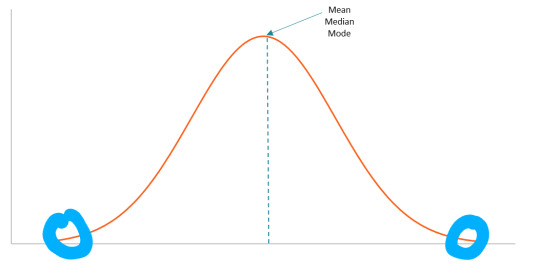
#Joseph Burgo#Goth 2.0#goth#gender ideology#queer theory#fatherlessness#gender identity#rebellion#religion is a mental illness
15 notes
·
View notes
Text
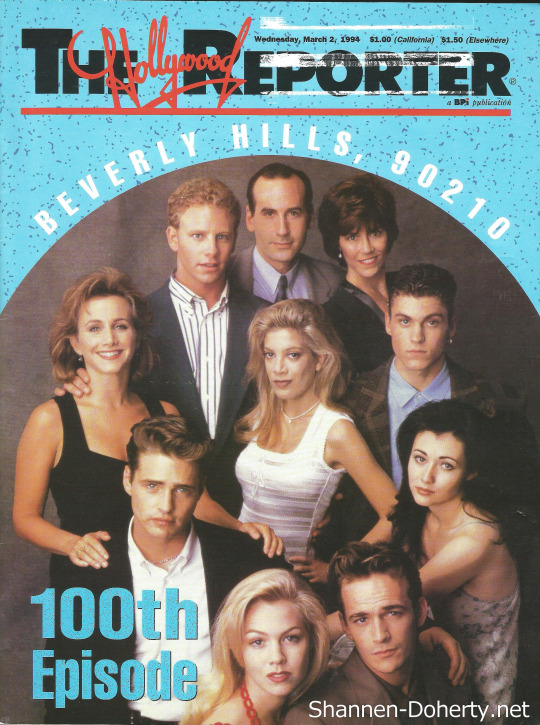
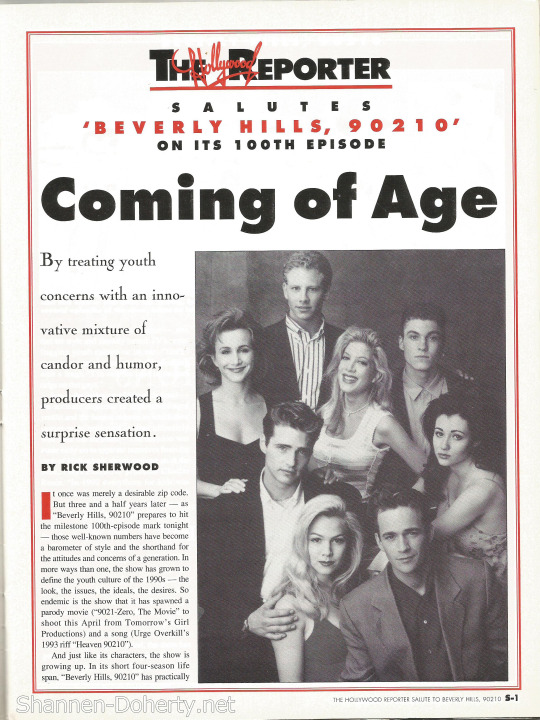
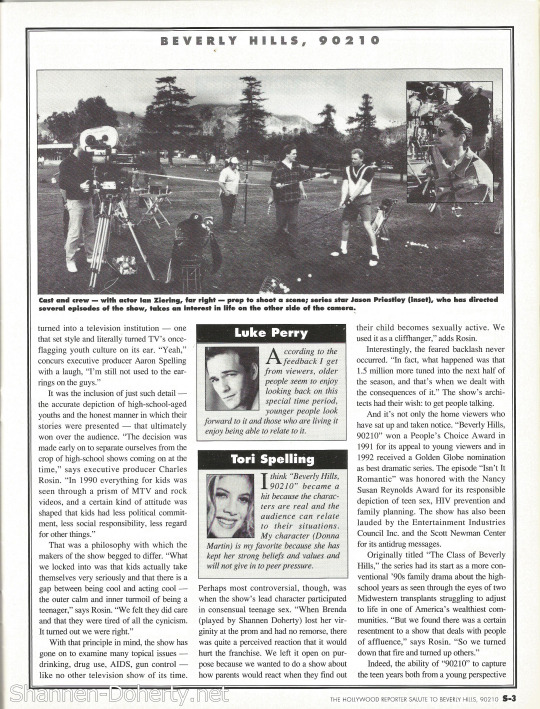
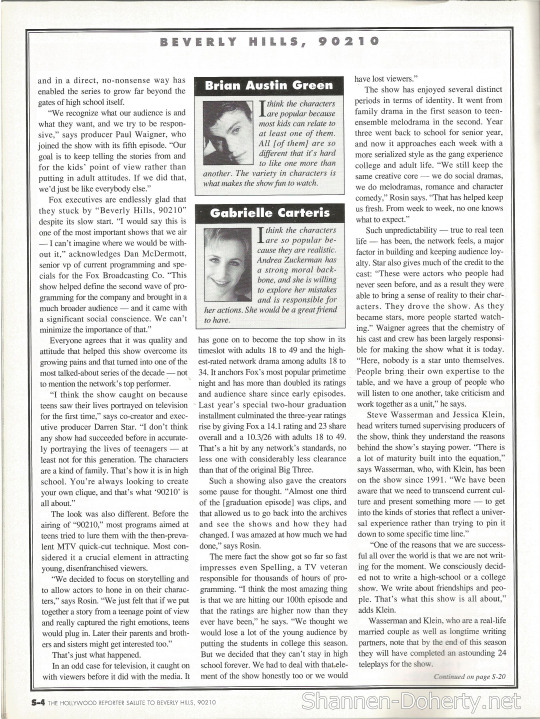
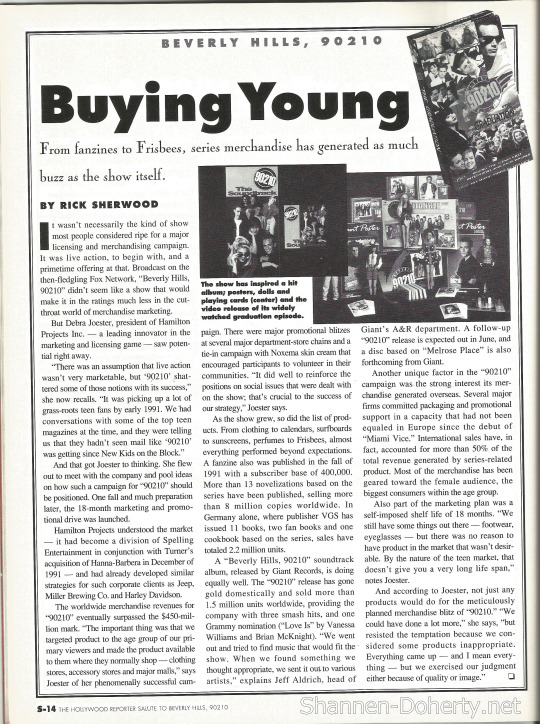
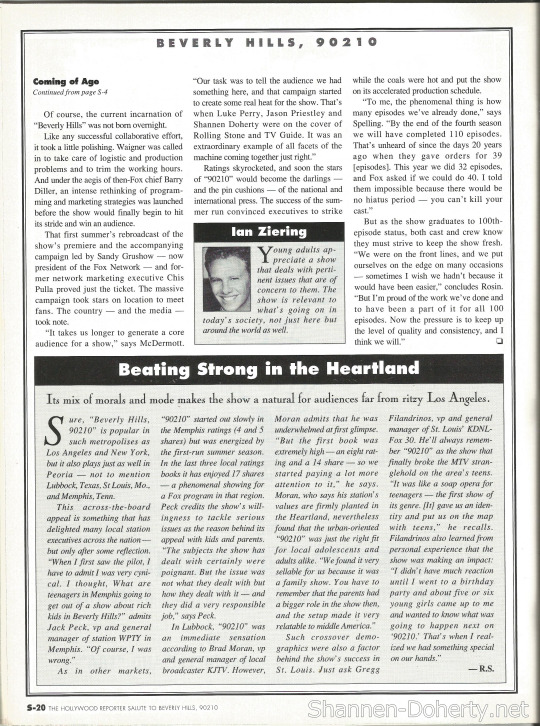
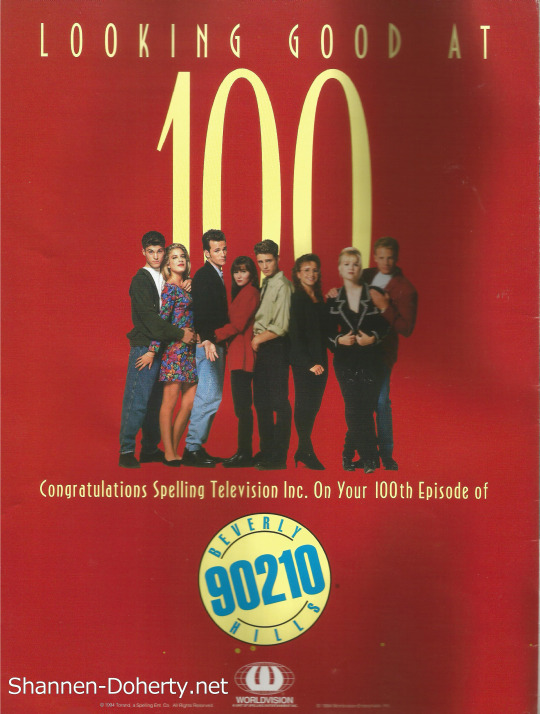
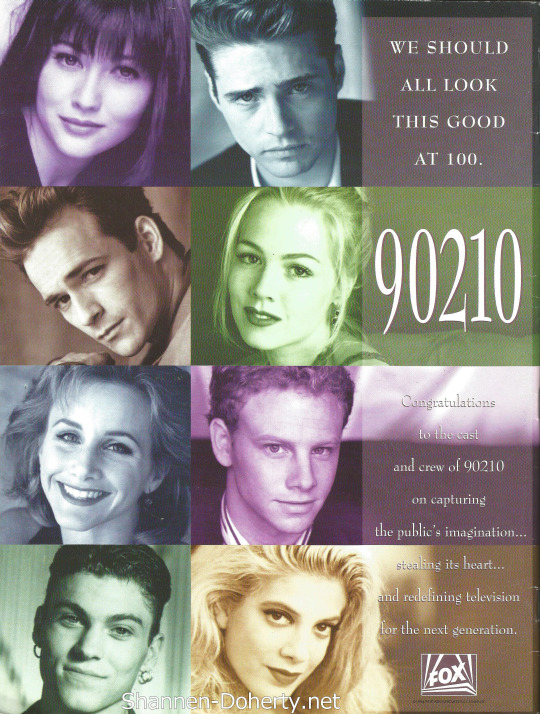
March 2, 1994 - The Hollywood Reporter
The Hollywood Reporter Salutes "Beverly Hills, 90210" on its 100th episode.
Coming of Age (part 1)
By treating youth concerns with an innovative mixture of candor and humor, producers created a surprise sensation.
BY RICK SHERWOOD
It once was merely a desirable zip code. But three and a half years later — as “Beverly Hills, 90210” prepares to hit the milestone 100th-episode mark tonight — those well-known numbers have become a barometer of style and the shorthand for the attitudes and concerns of a generation. In more ways than one, the show has grown to define the youth culture of the 1990s — the look, the issues, the ideals, the desires. So endemic is the show that it has spawned a parody movie (“9021-Zero, The Movie” to shoot this April from Tomorrow’s Girl Productions) and a song (Urge Overkill’s 1993 riff “Heaven 902107).
Tori Spelling: I think “Beverly Hills, 90210” became a hit because the characters are real and the audience can relate to their situations. My character (Donna Martin) is my favorite because she has kept her strong beliefs and values and will not give in to peer pressure.
And just like its characters, the show is growing up. In its short four-season life span, “Beverly Hills, 90210” has practically turned into a television institution — one that set style and literally turned TV's once-flagging youth culture on its ear. “Yeah,” concurs executive producer Aaron Spelling with a laugh, “I’m still not used to the ear- rings on the guys.”
It was the inclusion of just such detail — the accurate depiction of high-school-aged youths and the honest manner in which their stories were presented — that ultimately won over the audience. “The decision was made early on to separate ourselves from the crop of high-school shows coming on at the time,” says executive producer Charles Rosin. “In 1990 everything for kids was seen through a prism of MTV and rock videos, and a certain kind of attitude was shaped that kids had less political commitment, less social responsibility, less regard for other things.”
That was a philosophy with which the makers of the show begged to differ. “What we locked into was that kids actually take themselves very seriously and that there is a gap between being cool and acting cool — the outer calm and inner turmoil of being a teenager,” says Rosin. “We felt they did care and that they were tired of all the cynicism. It turned out we were right.”
With that principle in mind, the show has gone on to examine many topical issues — drinking, drug use, AIDS, gun control — like no other television show of its time.
Perhaps most controversial, though, was when the show’s lead character participated in consensual teenage sex. “When Brenda (played by Shannen Doherty) lost her virginity at the prom and had no remorse, there was quite a perceived reaction that it would hurt the franchise. We left it open on purpose because we wanted to do a show about how parents would react when they find out their child becomes sexually active. We used it as a cliffhanger,” adds Rosin.
Interestingly, the feared backlash never occurred. “In fact, what happened was that 1.5 million more tuned into the next half of the season, and that’s when we dealt with the consequences of it.” The show’s architects had their wish: to get people talking.
And it’s not only the home viewers who have sat up and taken notice. “Beverly Hills, 90210” won a People’s Choice Award in 1991 for its appeal to young viewers and in 1992 received a Golden Globe nomination as best dramatic series. The episode “Isn’t It Romantic” was honored with the Nancy Susan Reynolds Award for its responsible depiction of teen sex, HIV prevention and family planning. The show has also been lauded by the Entertainment Industries Council Inc. and the Scott Newman Center for its antidrug messages.
Luke Perry: According to the feedback I get from viewers, older people seem to enjoy looking back on this special time period, younger people look forward to it and those who are living it enjoy being able to relate to it.
Originally titled “The Class of Beverly Hills,” the series had its start as a more conventional "90s family drama about the high-school years as seen through the eyes of two Midwestern transplants struggling to adjust to life in one of America’s wealthiest communities. “But we found there was a certain resentment to a show that deals with people of affluence,” says Rosin. “So we turned down that fire and turned up others.”
Indeed, the ability of “90210” to capture the teen years both from a young perspective and in a direct, no-nonsense way has enabled the series to grow far beyond the gates of high school itself.
“We recognize what our audience is and what they want, and we try to be responsive,” says producer Paul Waigner, who joined the show with its fifth episode. “Our goal is to keep telling the stories from and for the kids’ point of view rather than putting in adult attitudes. If we did that, we’d just be like everybody else.”
Brian Austin Green: The characters are popular because most kids can relate to at least one of them. All [of them] are so different that it's hard to like one more than another. The variety in characters is what makes the show fun to watch.
Fox executives are endlessly glad that they stuck by “Beverly Hills, 90210” despite its slow start. “I would say this is one of the most important shows that we air — I can’t imagine where we would be without it,” acknowledges Dan McDermott, senior vp of current programming and specials for the Fox Broadcasting Co. “This show helped define the second wave of programming for the company and brought in a much broader audience — and it came with a significant social conscience. We can’t minimize the importance of that.”
Everyone agrees that it was quality and attitude that helped this show overcome its growing pains and that turned into one of the most talked-about series of the decade — not to mention the network’s top performer.
“I think the show caught on because teens saw their lives portrayed on television for the first time,” says co-creator and executive producer Darren Star. “I don’t think any show had succeeded before in accurately portraying the lives of teenagers — at least not for this generation. The characters are a kind of family. That’s how it is in high school. You're always looking to create your own clique, and that’s what ‘90210 is all about.”
The look was also different. Before the airing of “90210,” most programs aimed at teens tried to lure them with the then-prevalent MTV quick-cut technique. Most considered it a crucial element in attracting young, disenfranchised viewers.
“We decided to focus on storytelling and to allow actors to hone in on their characters,” says Rosin. “We just felt that if we put together a story from a teenage point of view and really captured the right emotions, teens would plug in. Later their parents and brothers and sisters might get interested too.”
That’s just what happened.
In an odd case for television, it caught on with viewers before it did with the media. It has gone on to become the top show in its timeslot with adults 18 to 49 and the highest-rated network drama among adults 18 to 34. It anchors Fox’s most popular primetime night and has more than doubled its ratings and audience share since early episodes. Last year’s special two-hour graduation installment culminated the three-year ratings rise by giving Fox a 14.1 rating and 23 share overall and a 10.3/26 with adults 18 to 49. That’s a hit by any network’s standards, no less one with considerably less clearance than that of the original Big Three.
Such a showing also gave the creators some pause for thought. “Almost one third of the [graduation episode] was clips, and that allowed us to go back into the archives and see the shows and how they had changed. I was amazed at how much we had done,” says Rosin.
The mere fact that the show got so far so fast impresses even Spelling, a TV veteran responsible for thousands of hours of programming. "I think the most amazing thing is that we are hitting out 100th episode and that the ratings are higher now than they ever have been," he says. "We thought we would loose a lot of the ypung audience by putting the students in college this season. But we decided that they can't stay in high school forever. We had to deal with that element of the show honestly too or we would have lost viewers".
Gabrielle Carteris: I think the characters are so popular because they are realistic. Andrea Zuckerman has a strong moral back-bone, and she is willing to explore her mistakes and is responsible for her actions. She would be a great friend to have.
The show has enjoyed several distinct periods in terms of identity. It went from family drama in the first season to teen-ensemble melodrama in the second. Year three went back to school for senior year, and now it approaches each week with a more serialized style as the gang experience college and adult life. “We still keep the same creative core — we do social dramas, we do melodramas, romance and character comedy,” Rosin says. “That has helped keep us fresh. From week to week, no one knows what to expect.”
Such unpredictability — true to real teen life — has been, the network feels, a major factor in building and keeping audience loyalty. Star also gives much of the credit to the cast: “These were actors who people had never seen before, and as a result they were able to bring a sense of reality to their characters. They drove the show. As they became stars, more people started watching.” Waigner agrees that the chemistry of his cast and crew has been largely responsible for making the show what it is today. “Here, nobody is a star unto themselves. People bring their own expertise to the table, and we have a group of people who will listen to one another, take criticism and work together as a unit,” he says.
Steve Wasserman and Jessica Klein, head writers turned supervising producers of the show, think they understand the reasons behind the show’s staying power. “There is a lot of maturity built into the equation,” says Wasserman, who, with Klein, has been on the show since 1991. “We have been aware that we need to transcend current culture and present something more — to get into the kinds of stories that reflect a universal experience rather than trying to pin it down to some specific time line.”
“One of the reasons that we are successful all over the world is that we are not writing for the moment. We consciously decided not to write a high-school or a college show. We write about friendships and people. That’s what this show is all about,” adds Klein.
Wasserman and Klein, who are a real-life married couple as well as longtime writing partners, note that by the end of this season they will have completed an astounding 24 teleplays for the show.
#shannen doherty#article#1994 article#1994 magazine article#1994 the hollywood reporter#1994 covergirl#beverly hills 90210#bh90210 100th episode#1994 shannen doherty#luke perry#jason priestley#brian austin green#tori spelling#jennie garth#gabrielle carteris#ian ziering#1990s#1990s shannen doherty#1990s magazine#magazine article#the hollywood reporter#aaron spelling#charles rosin#darren star
5 notes
·
View notes